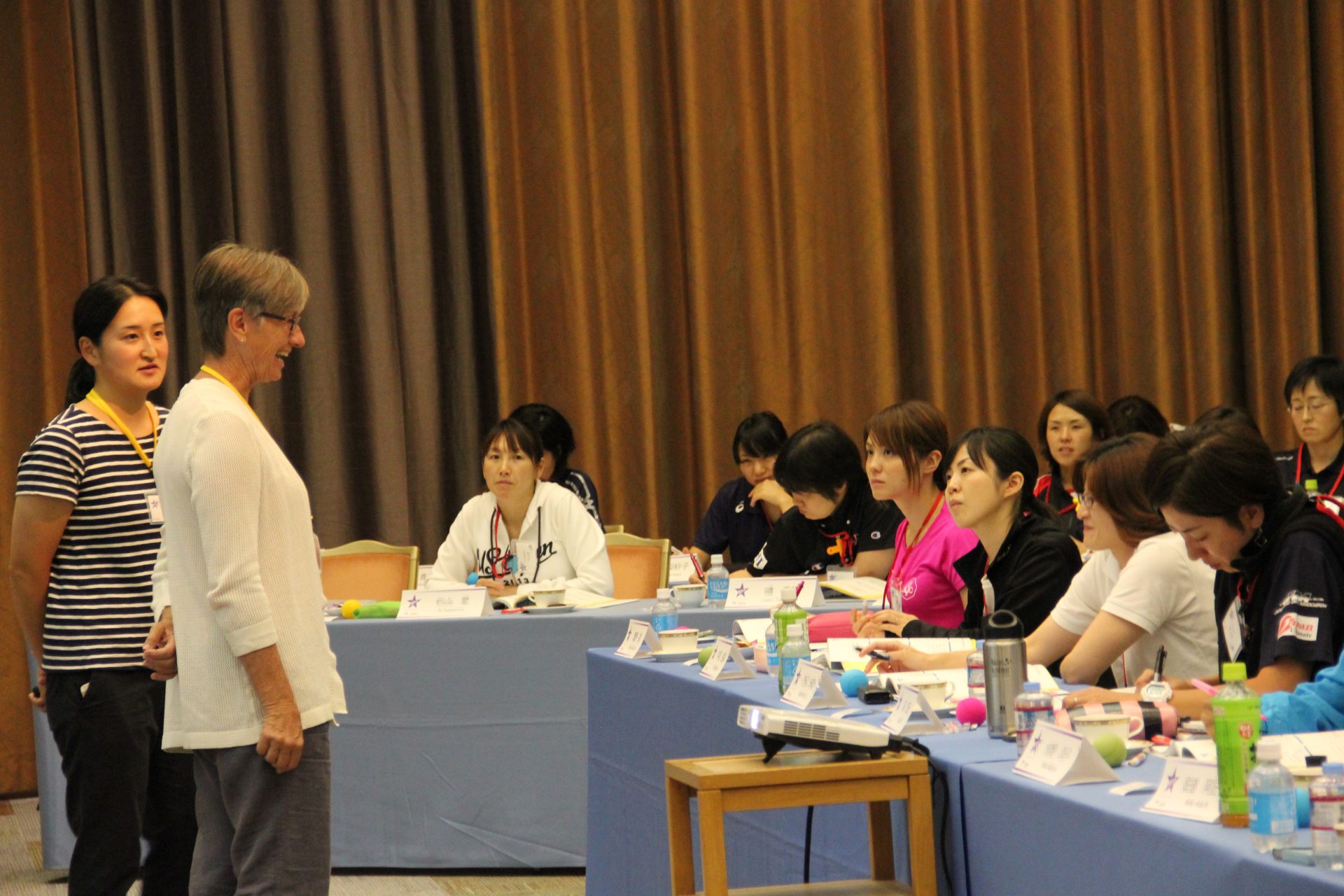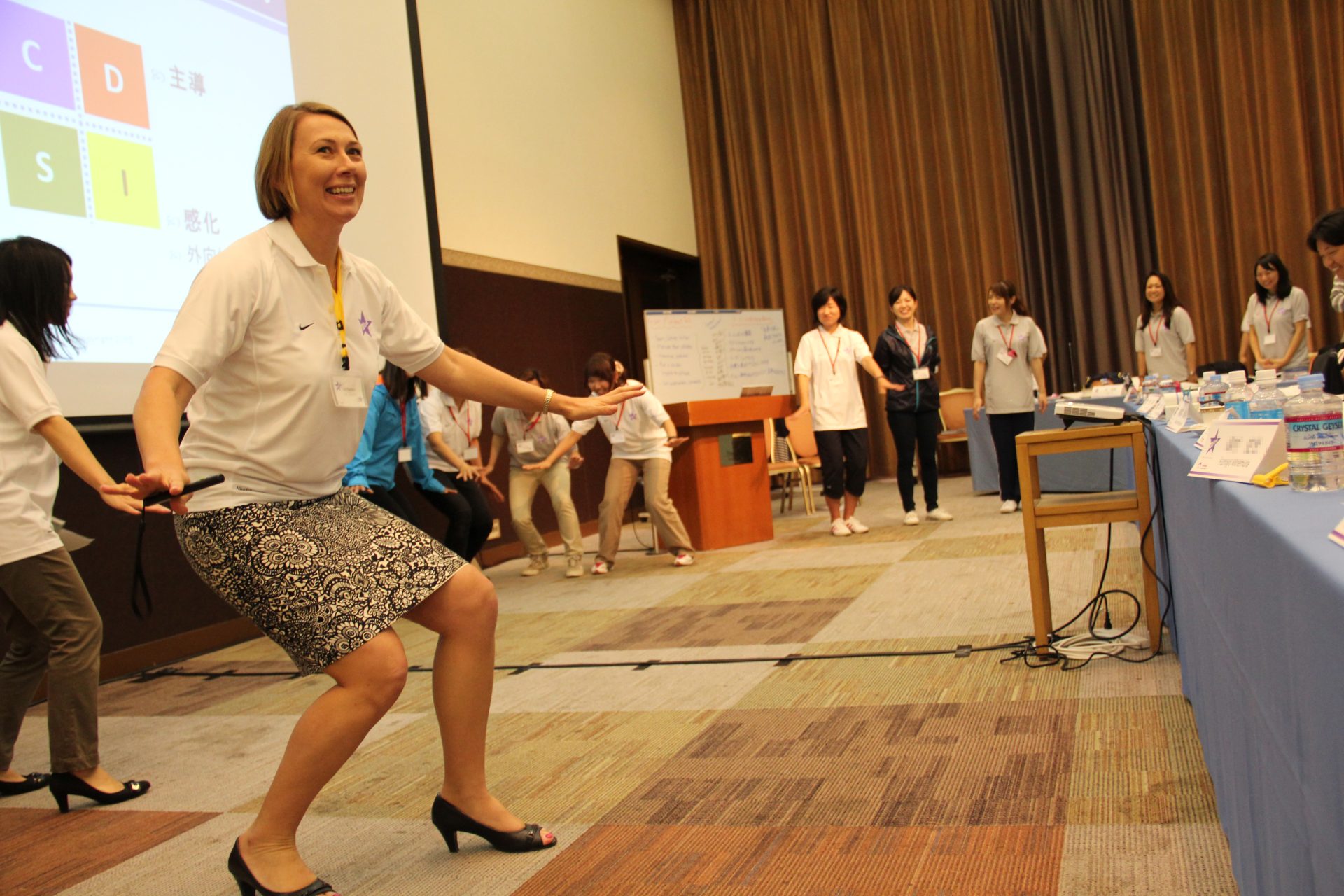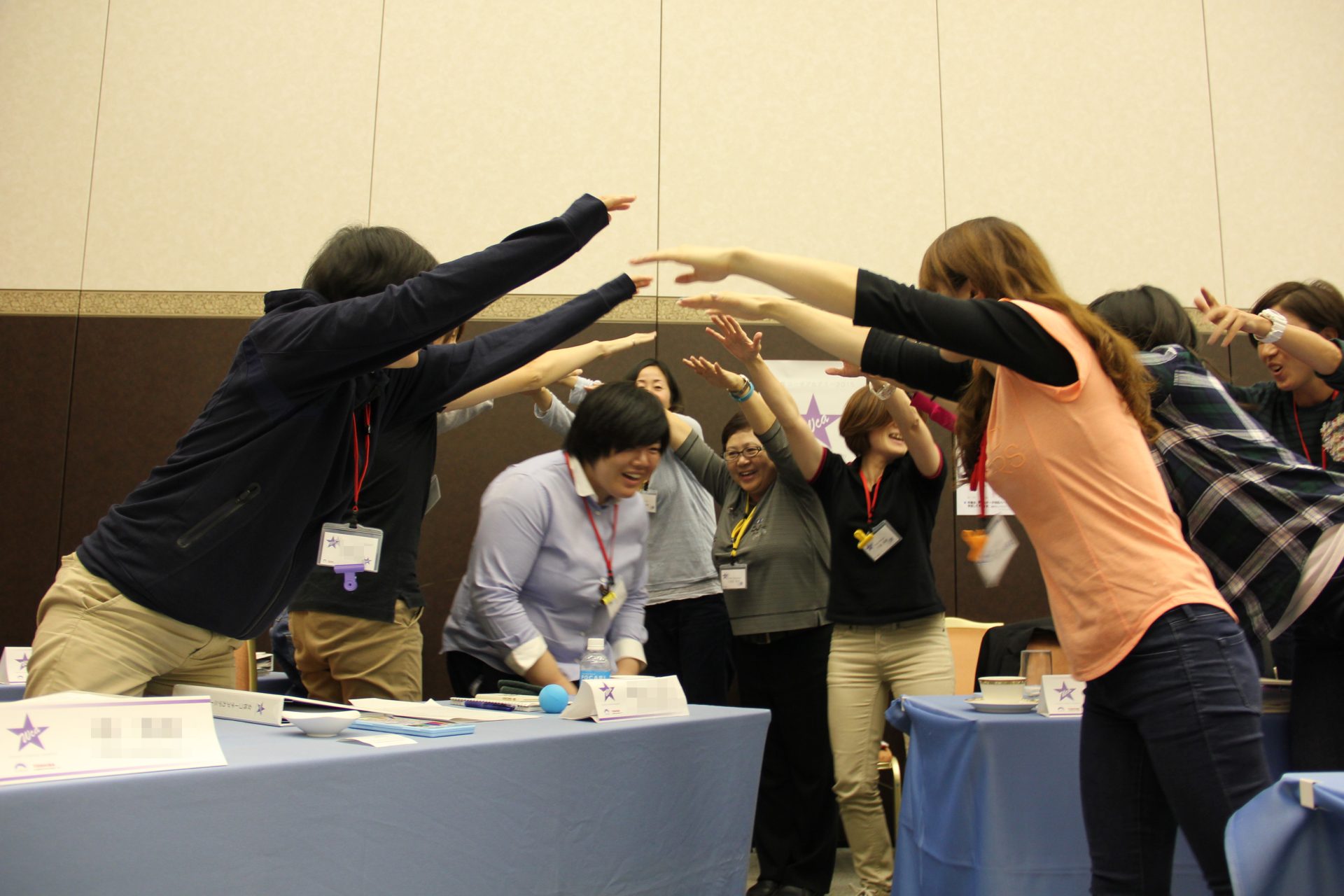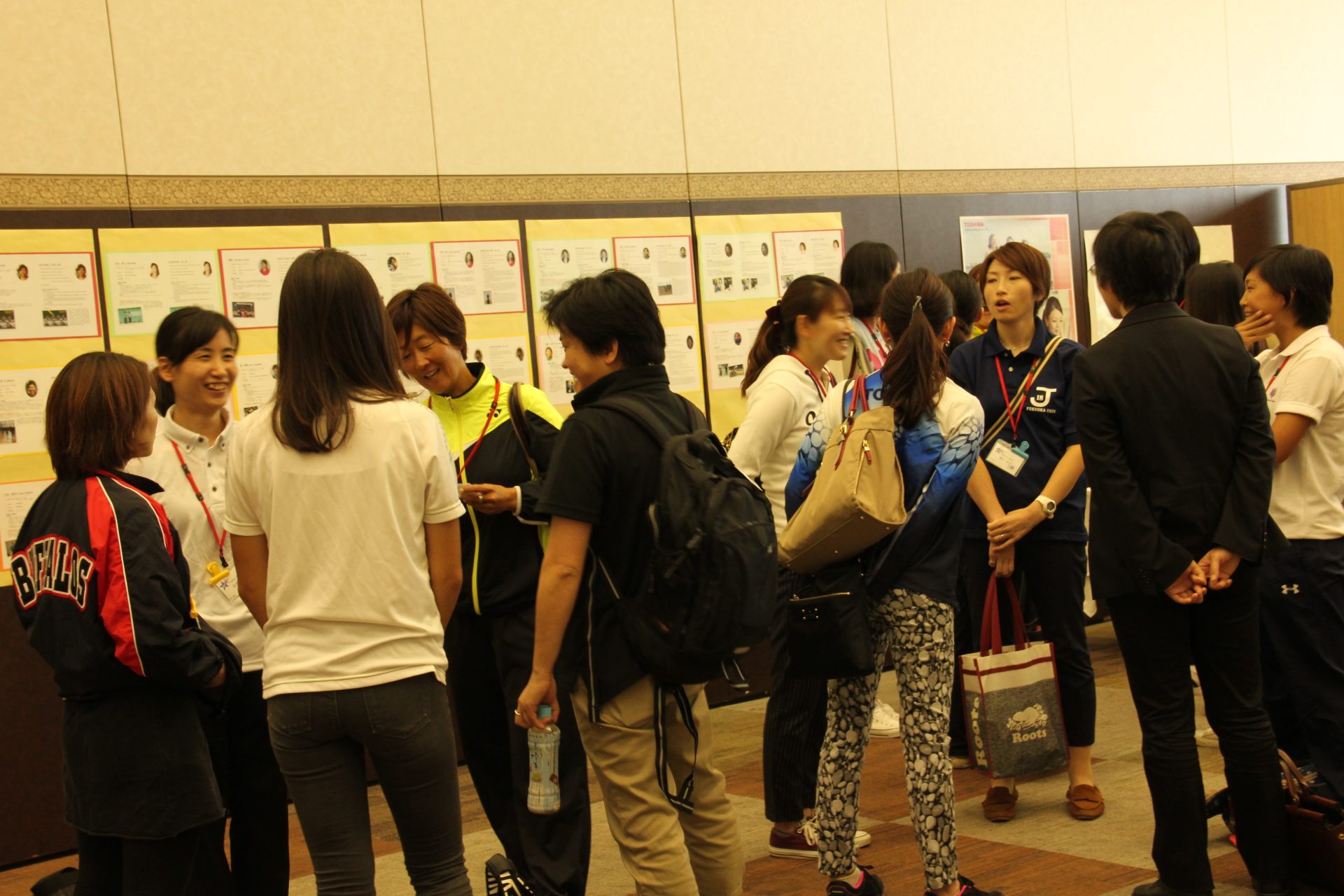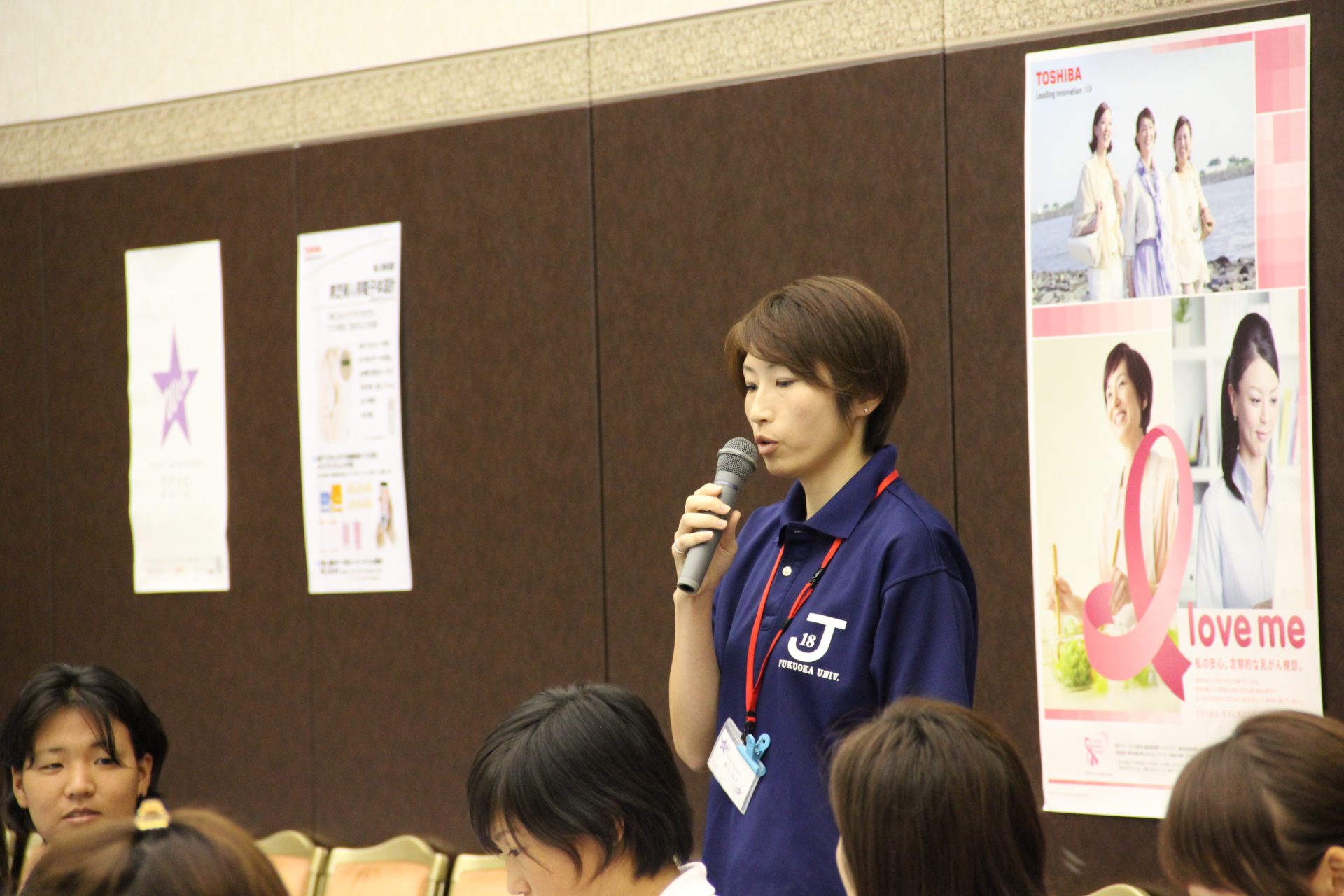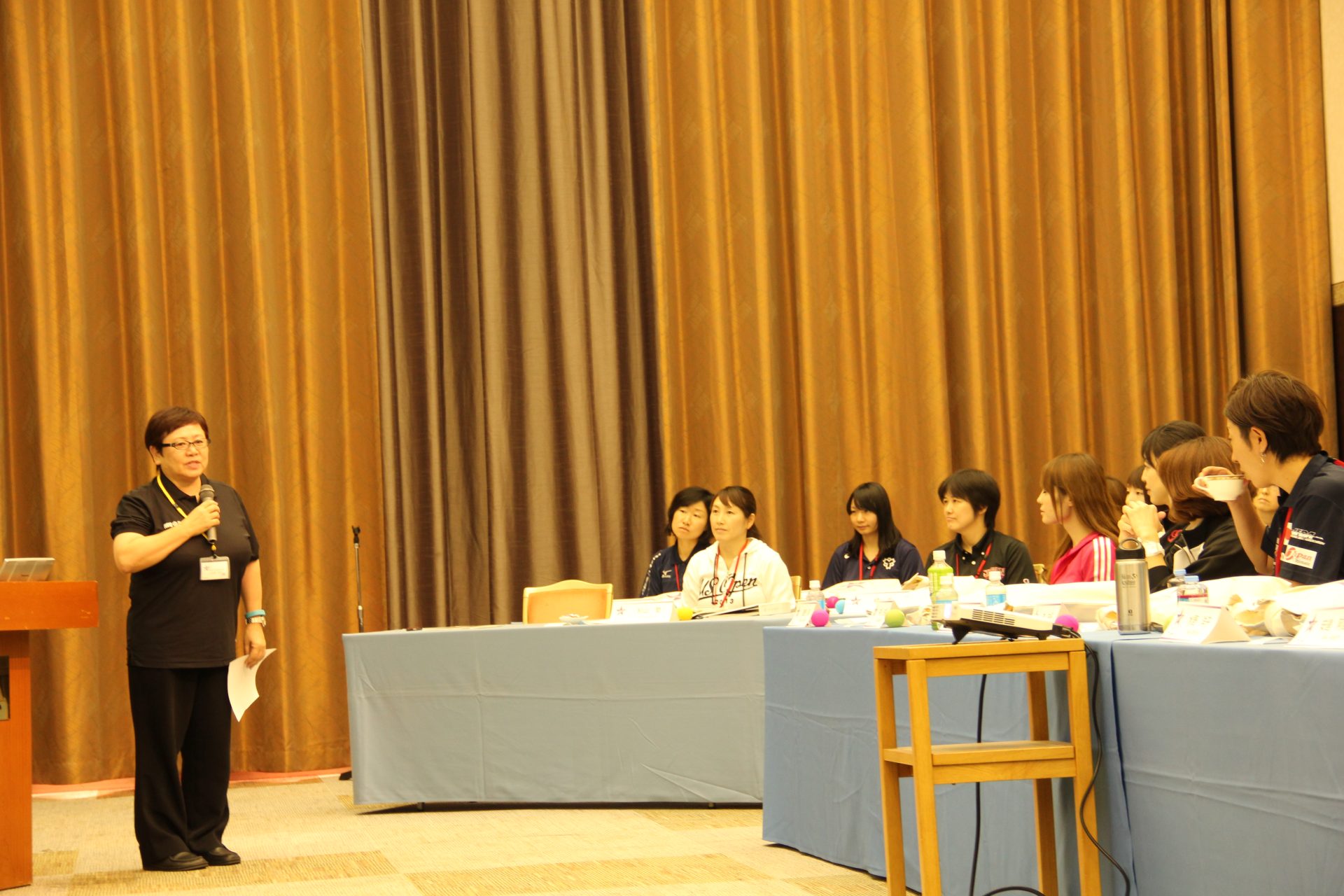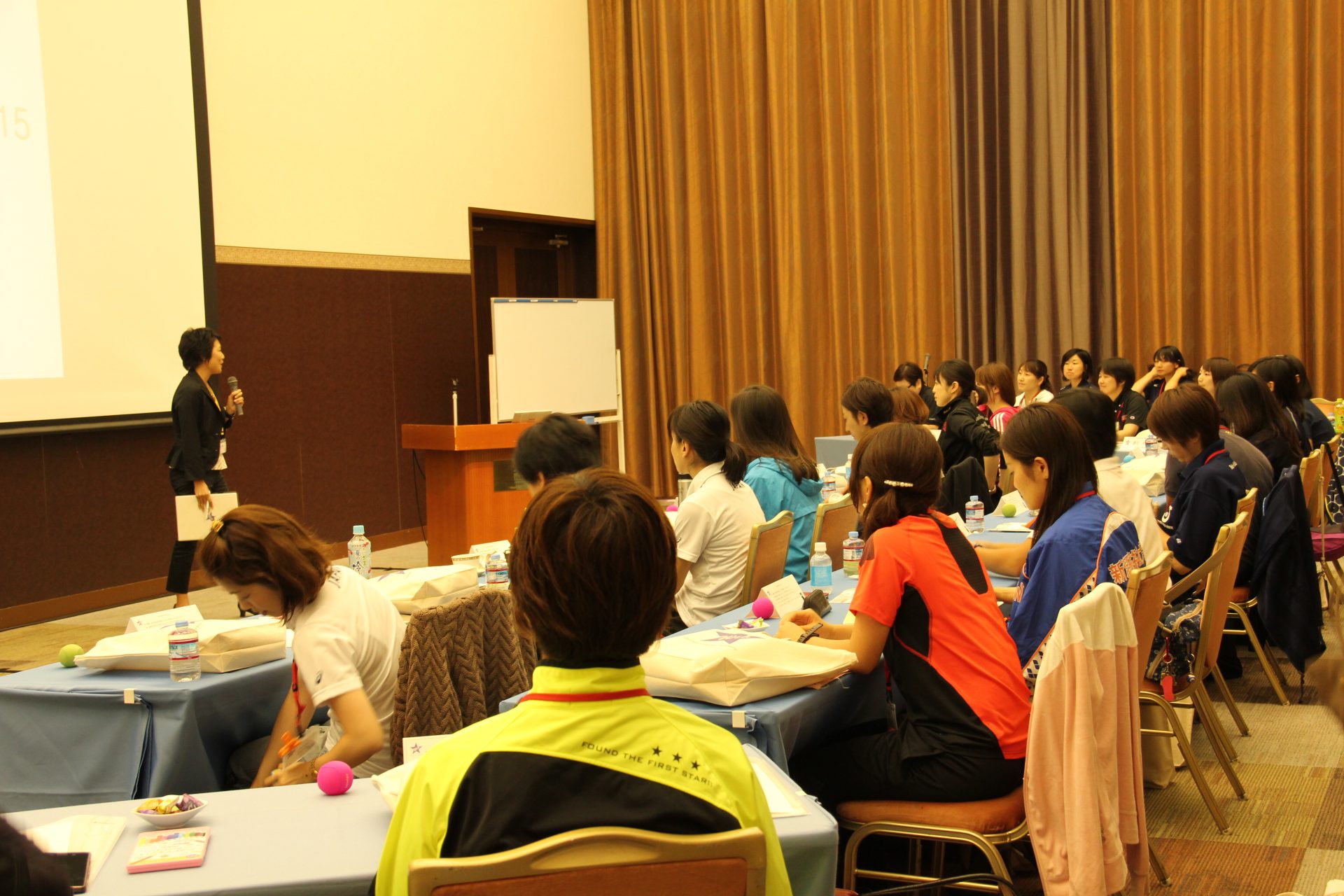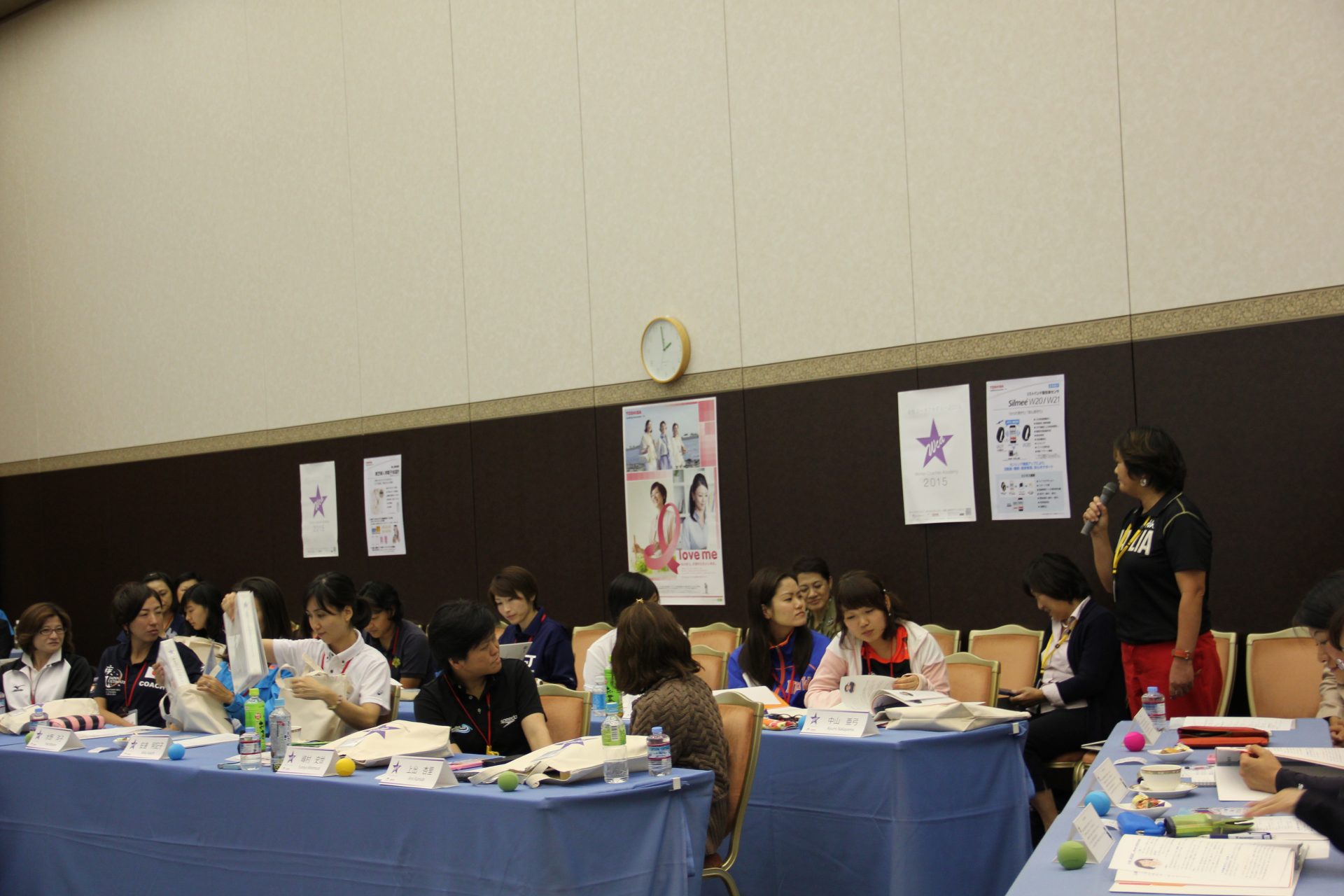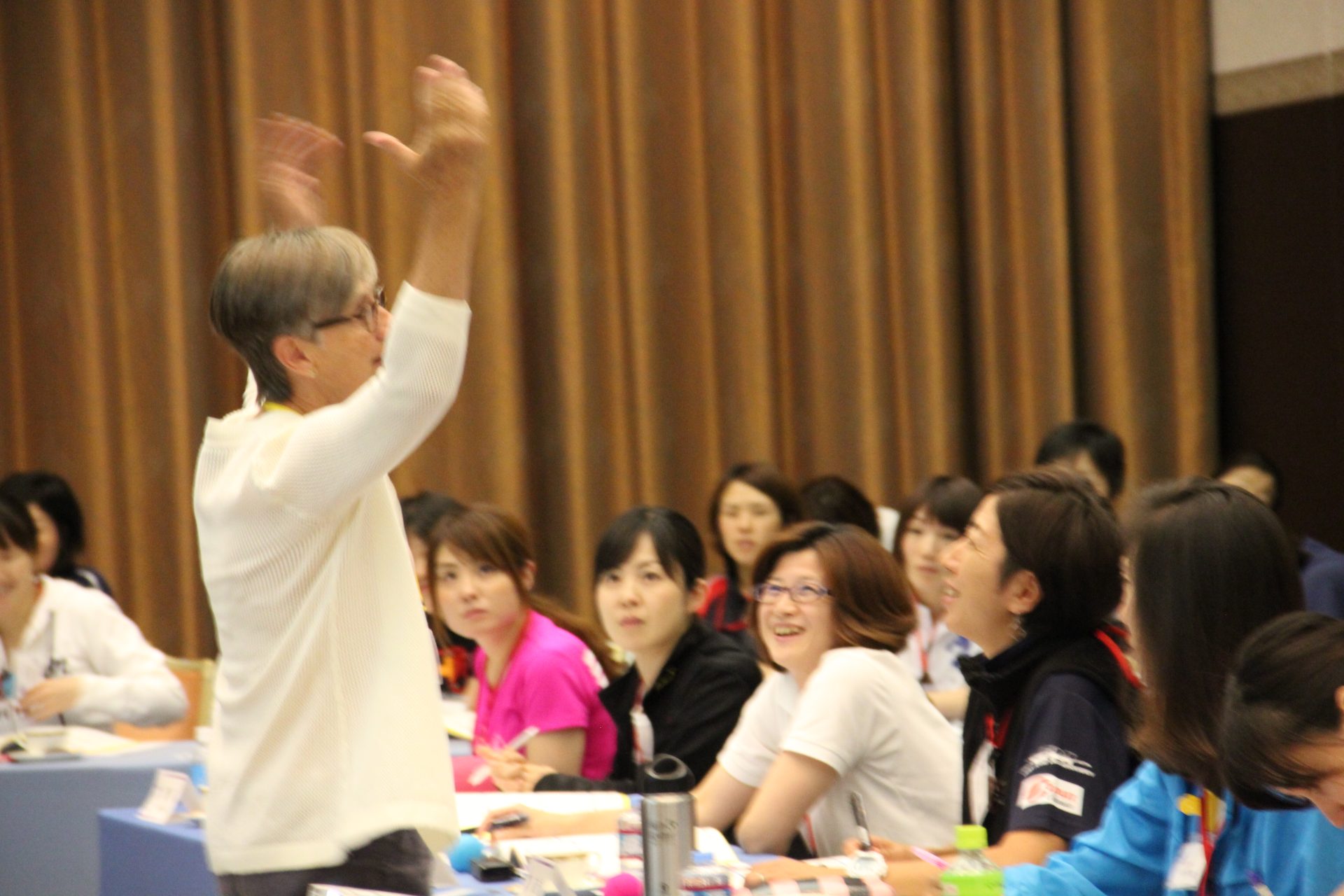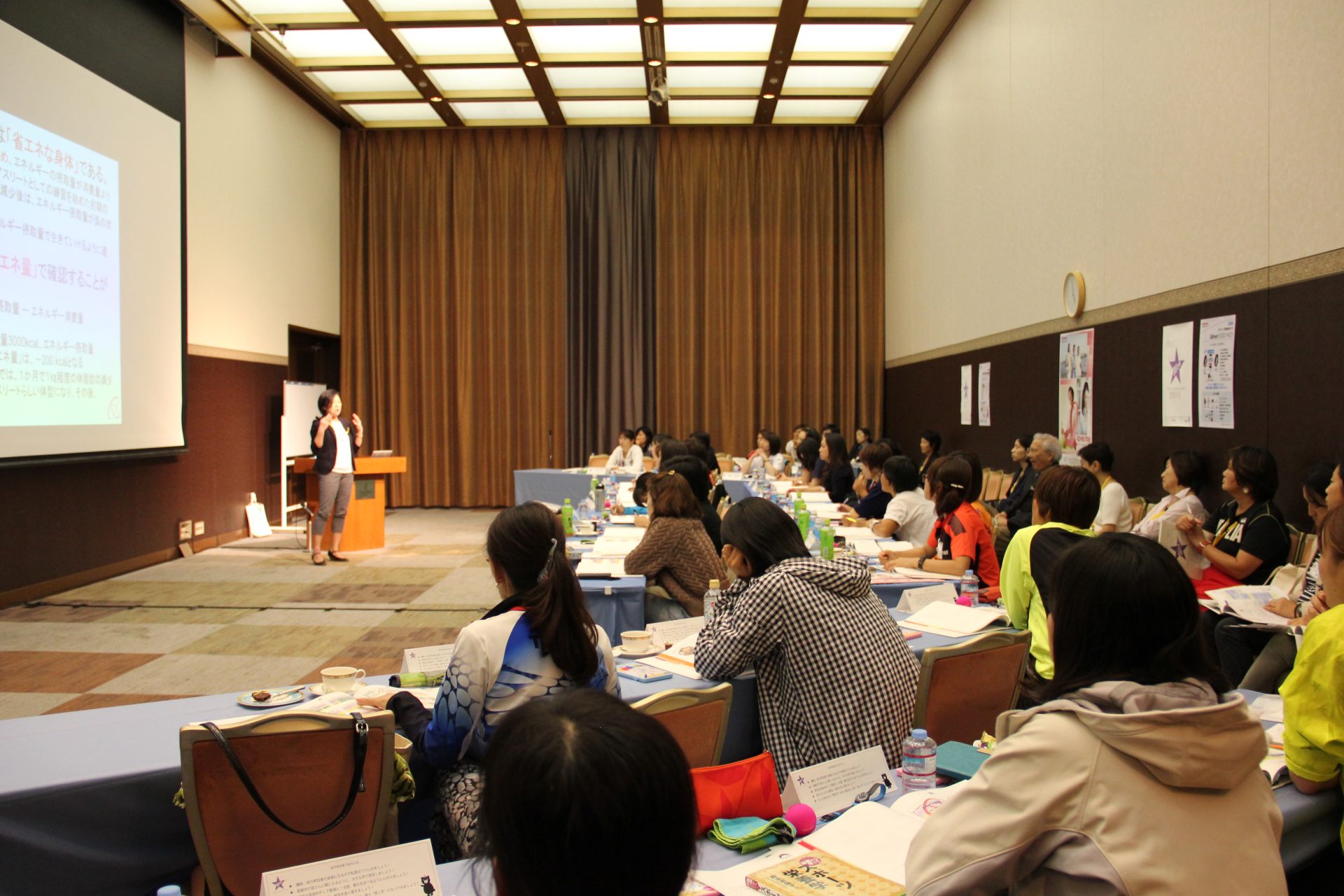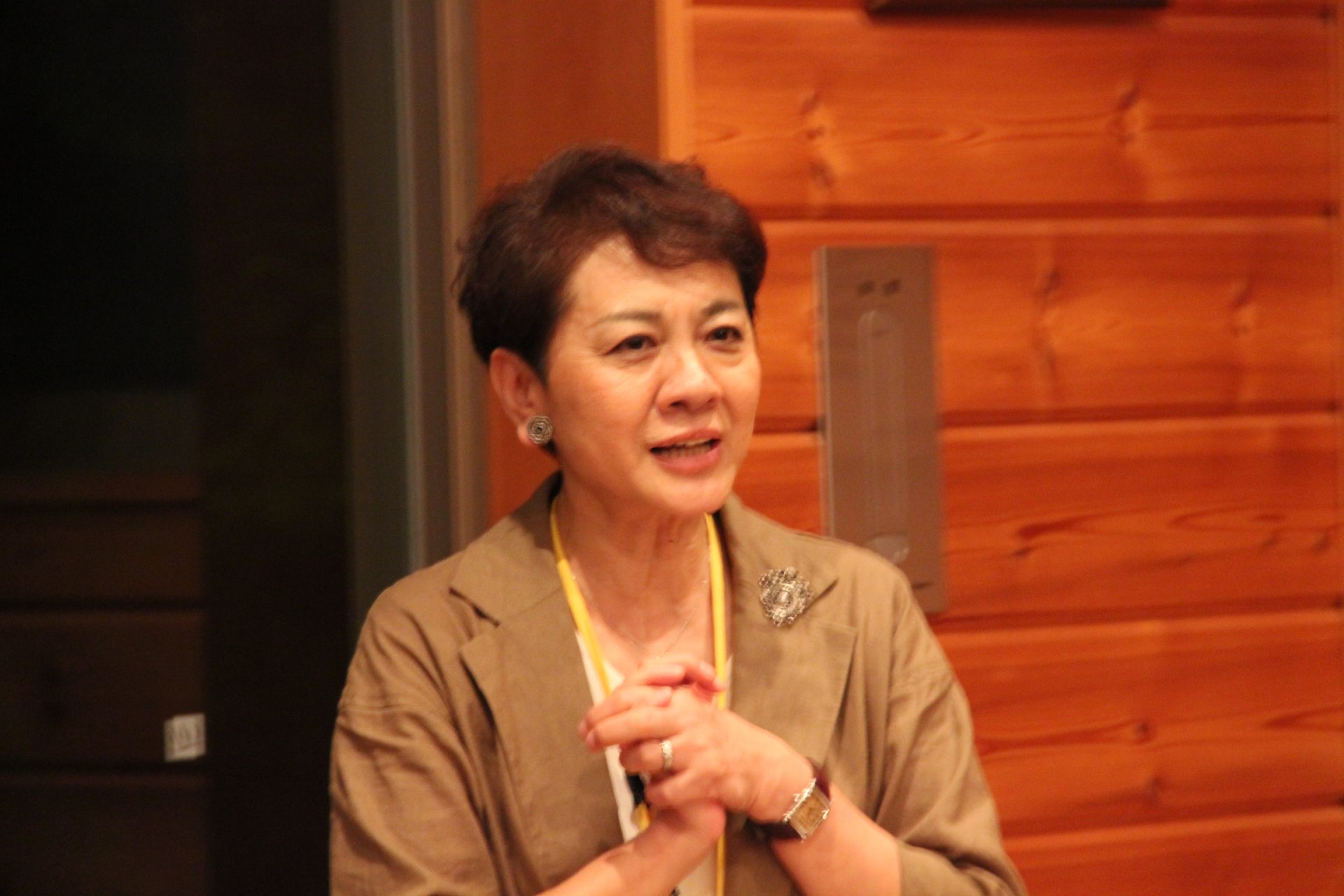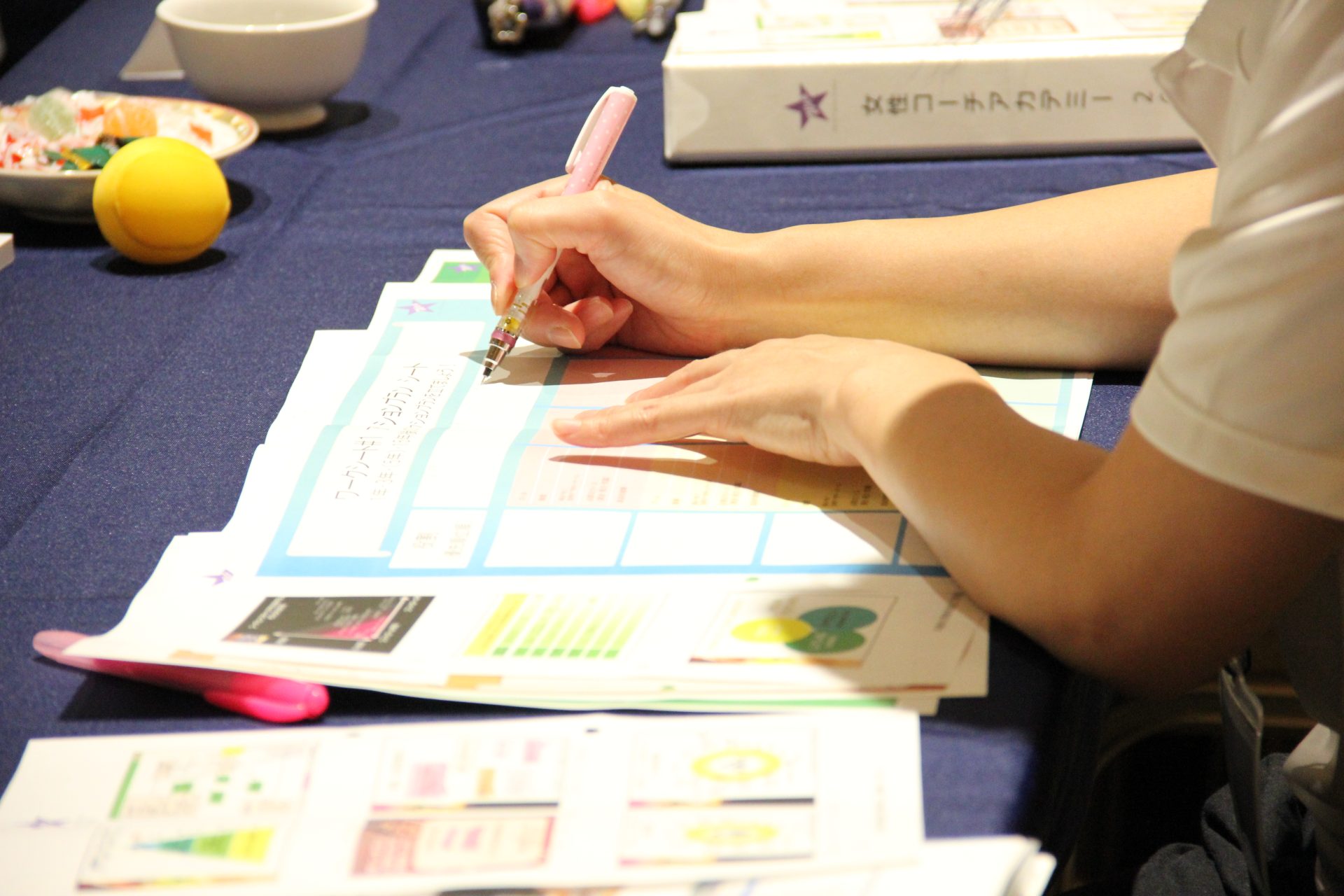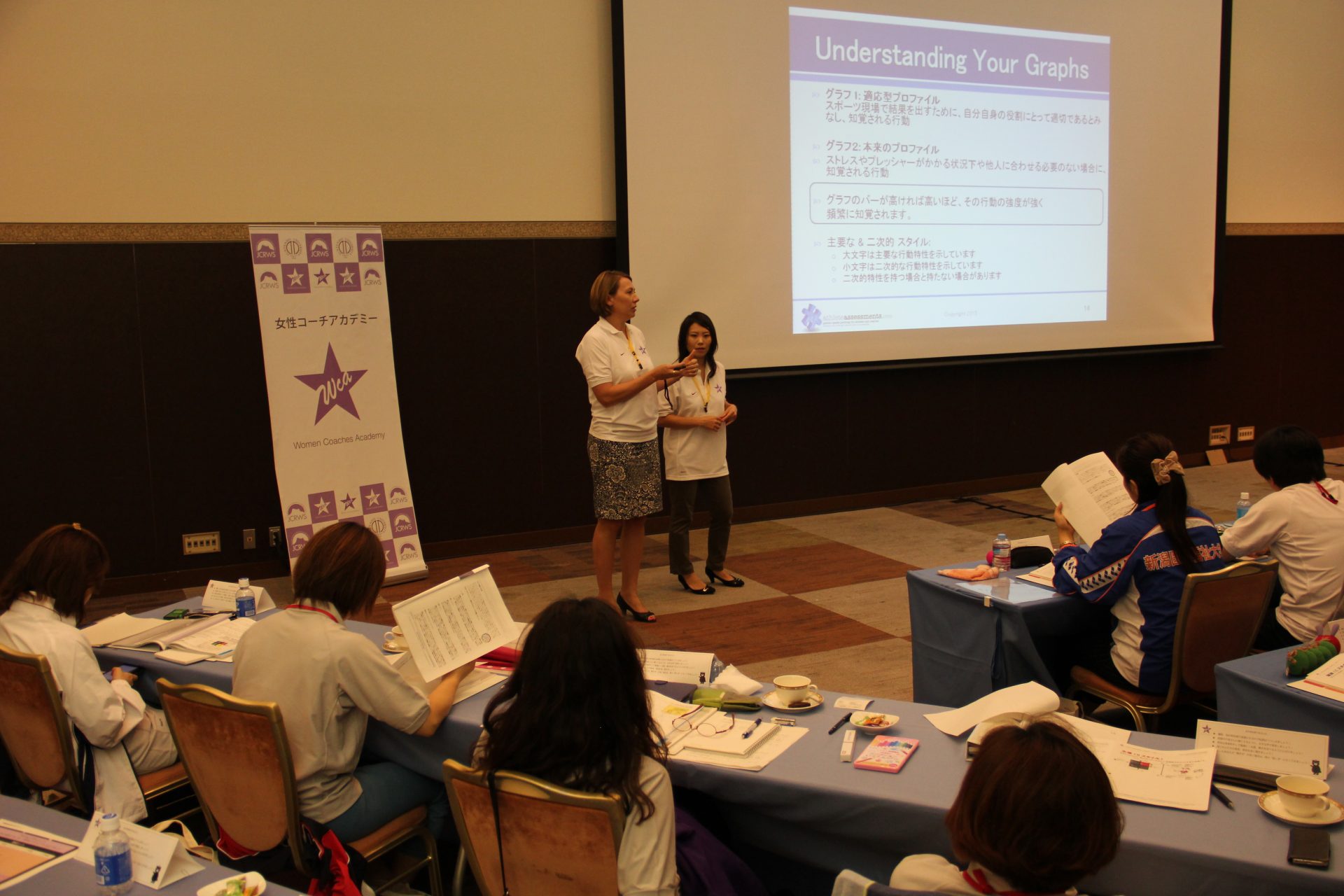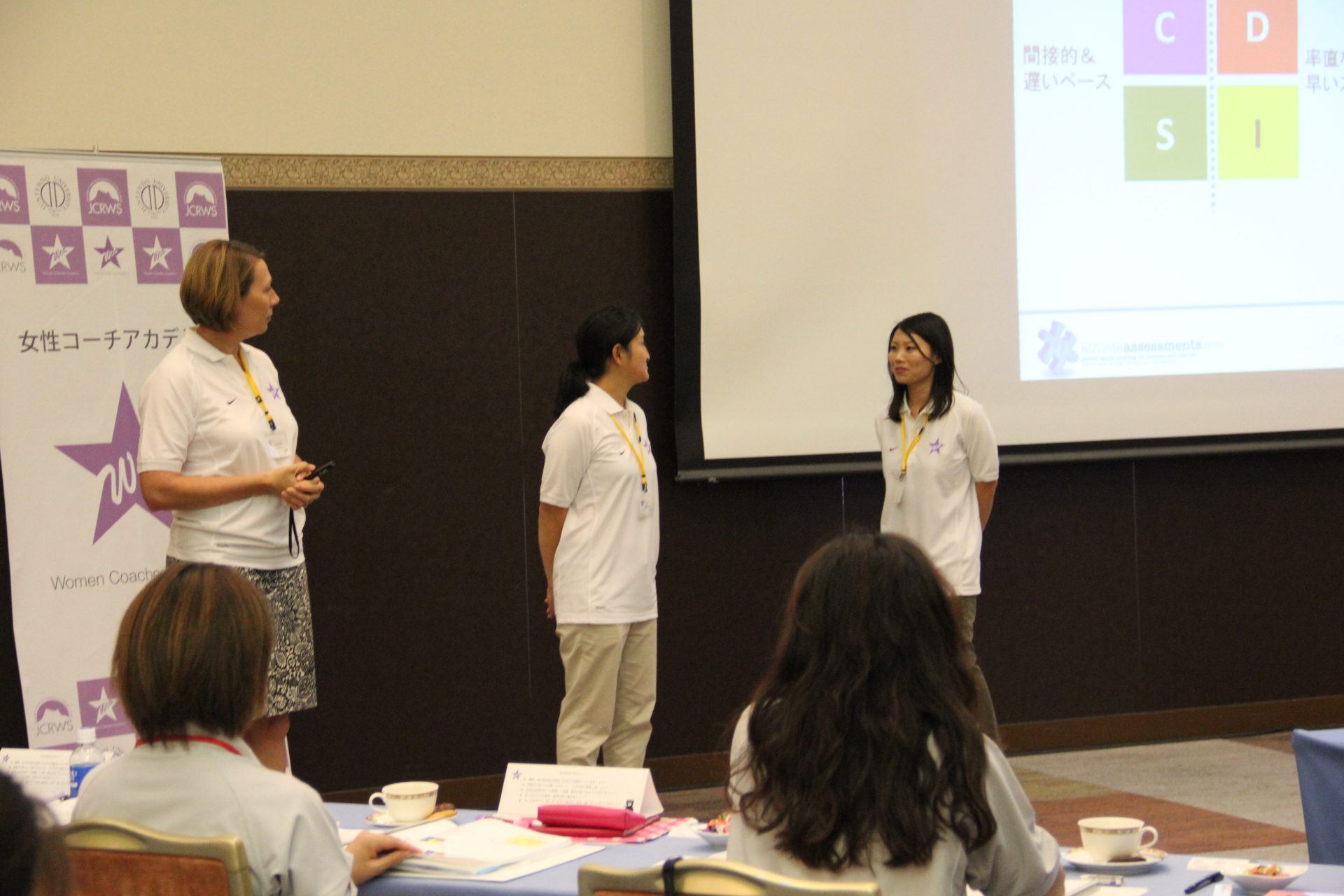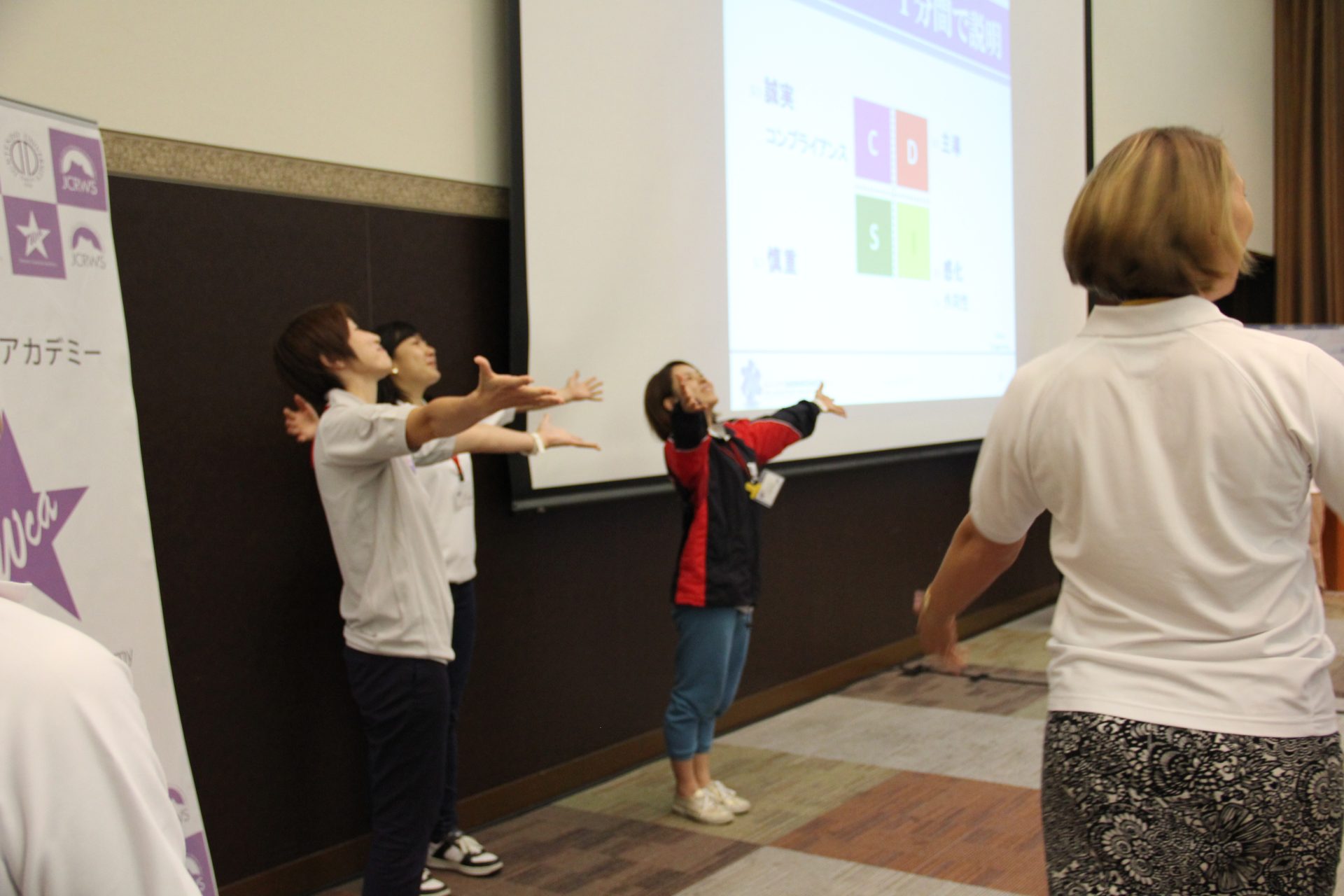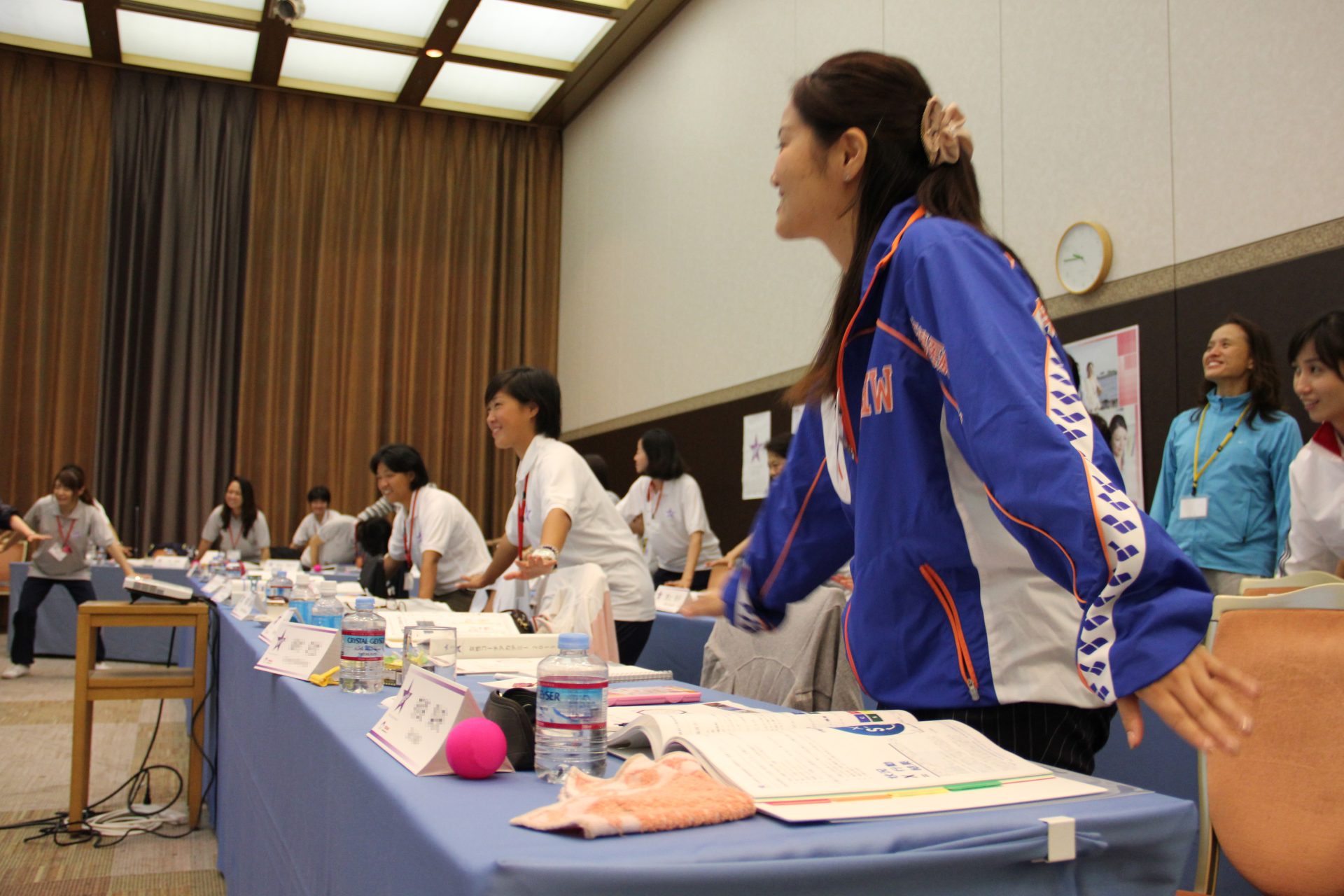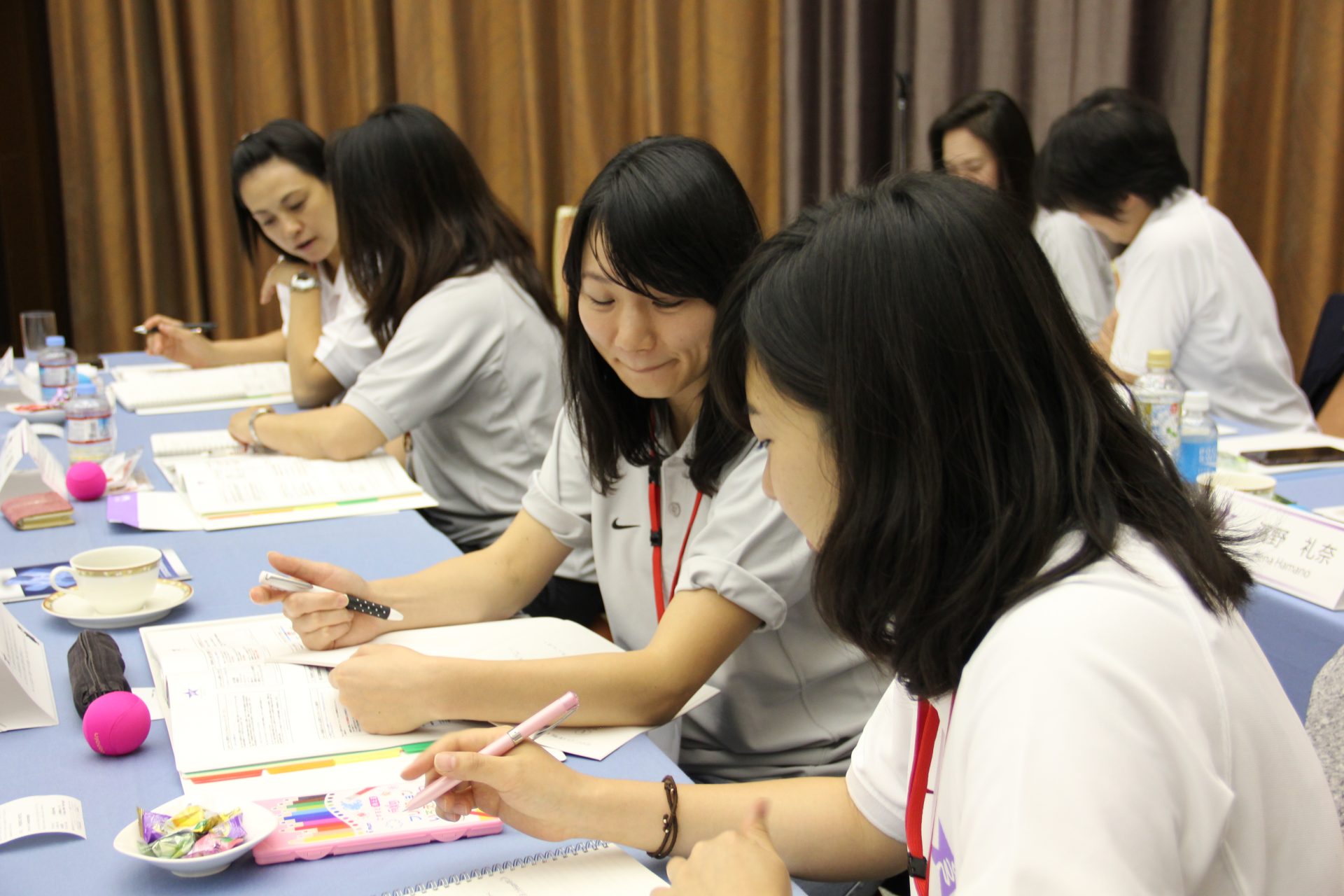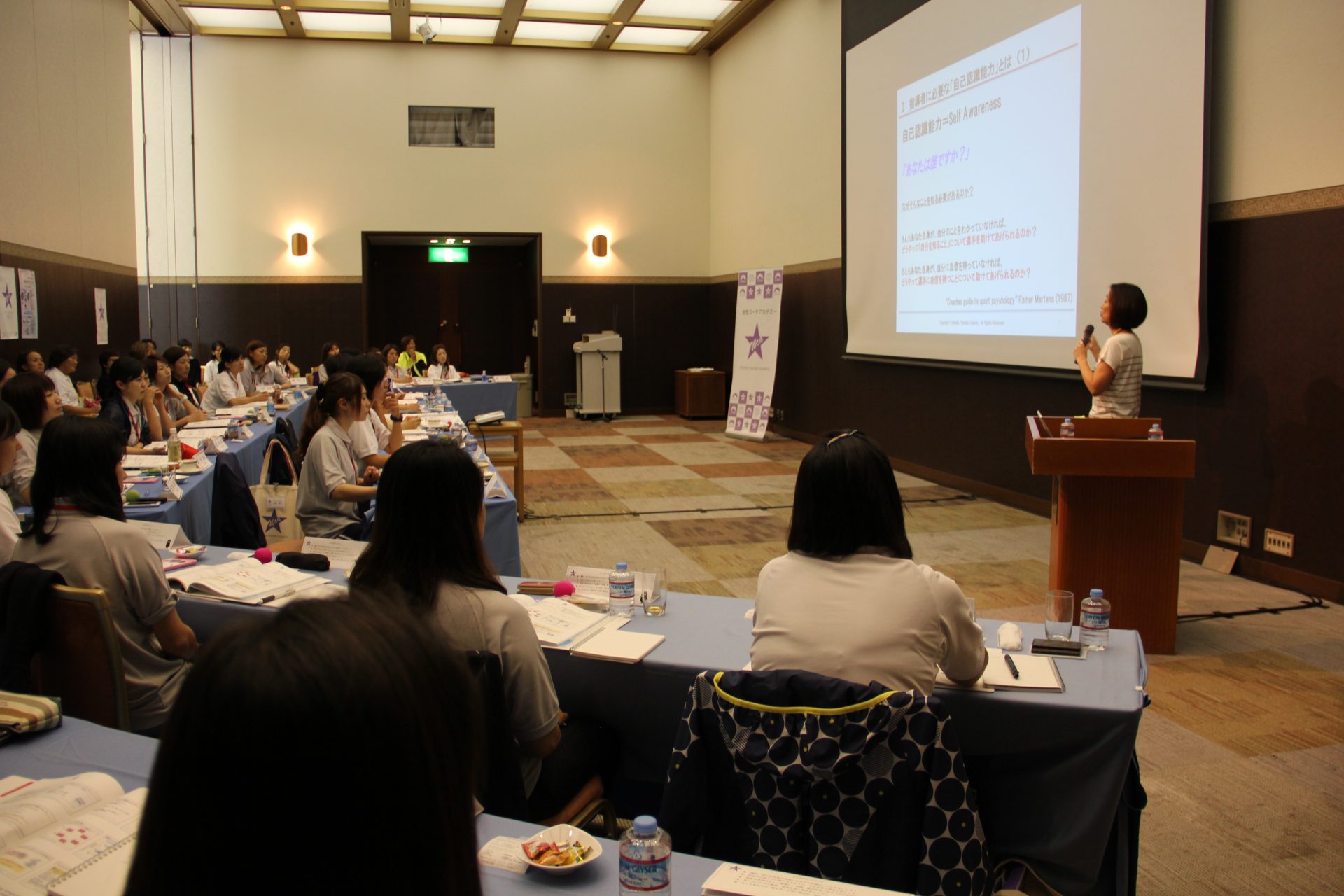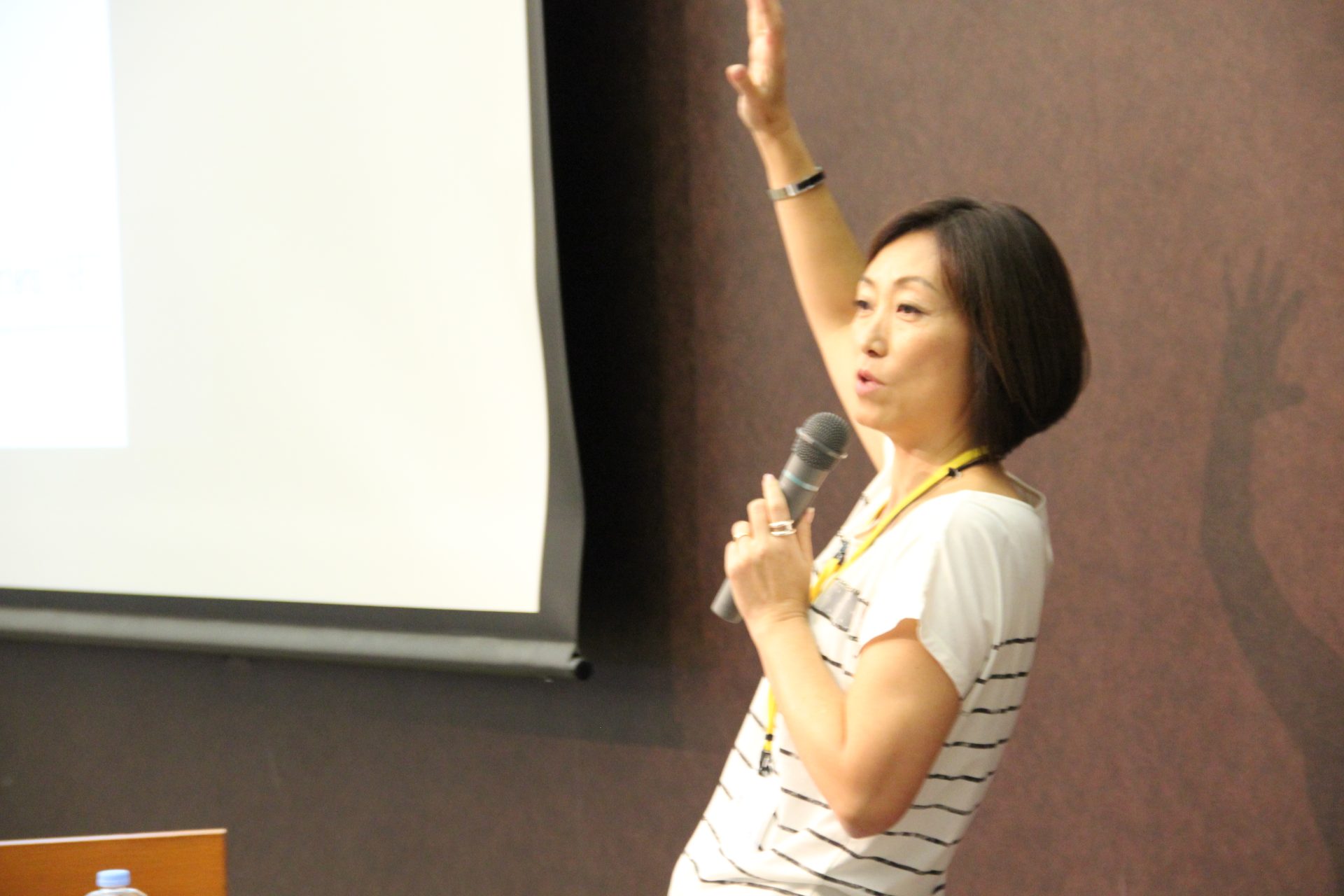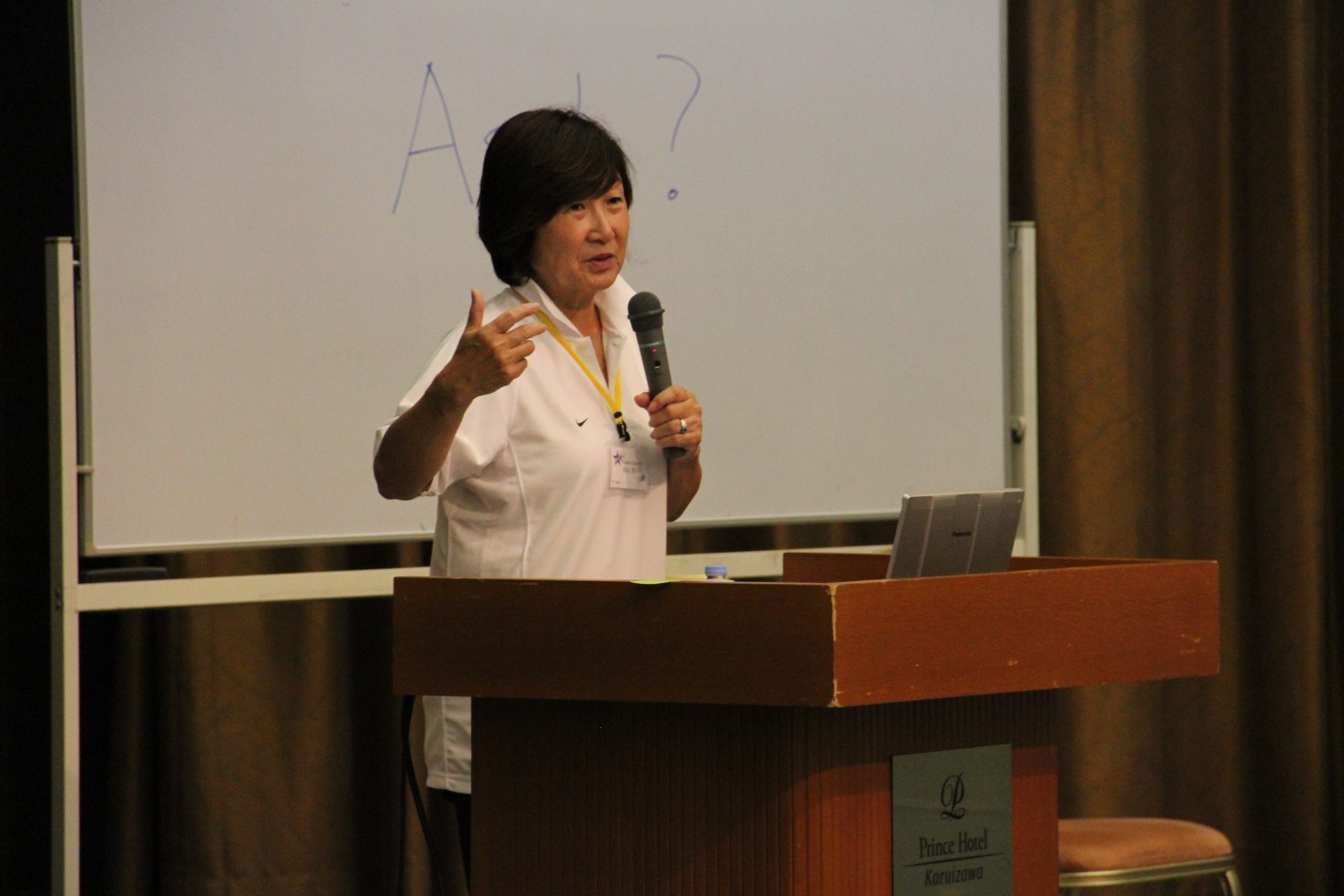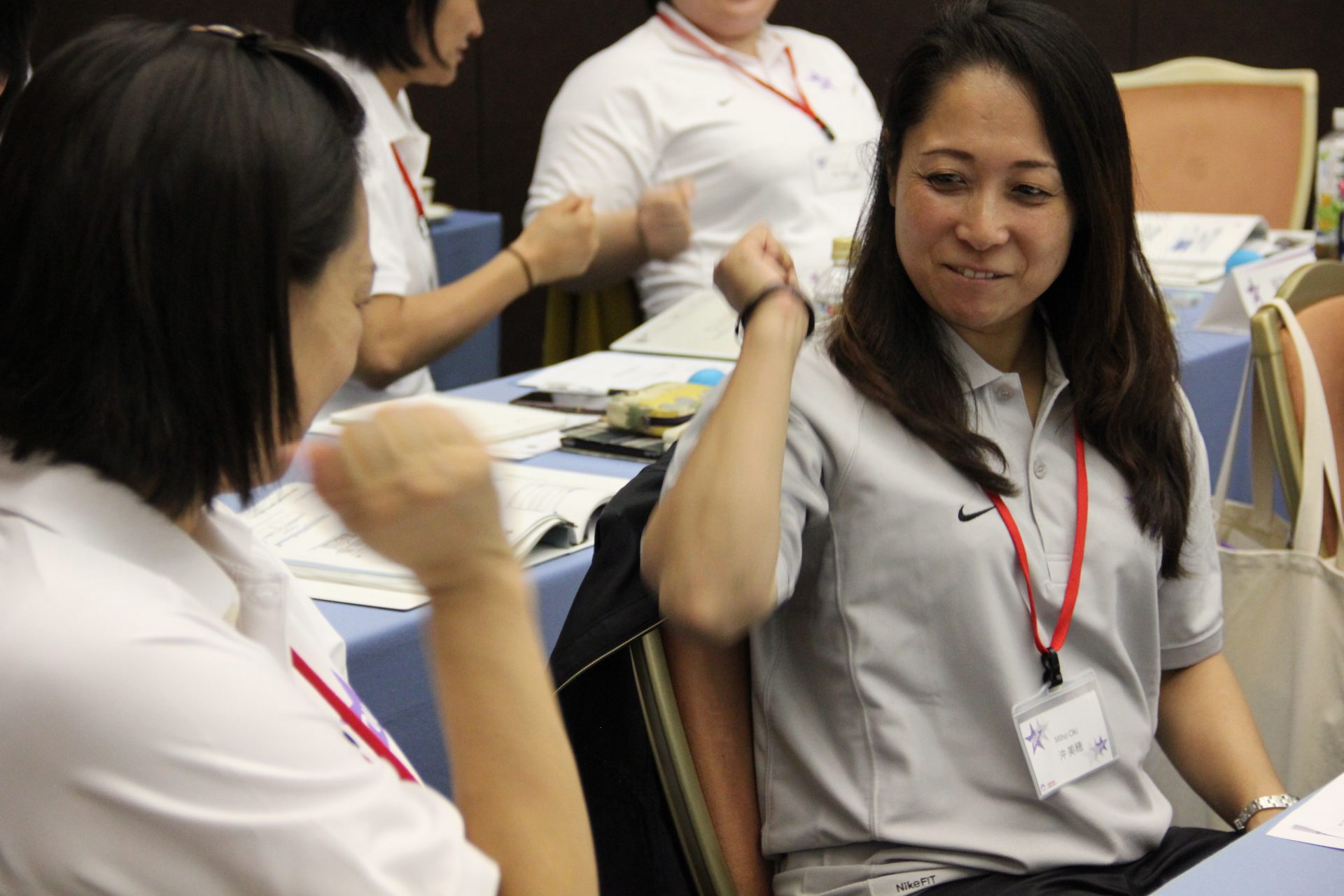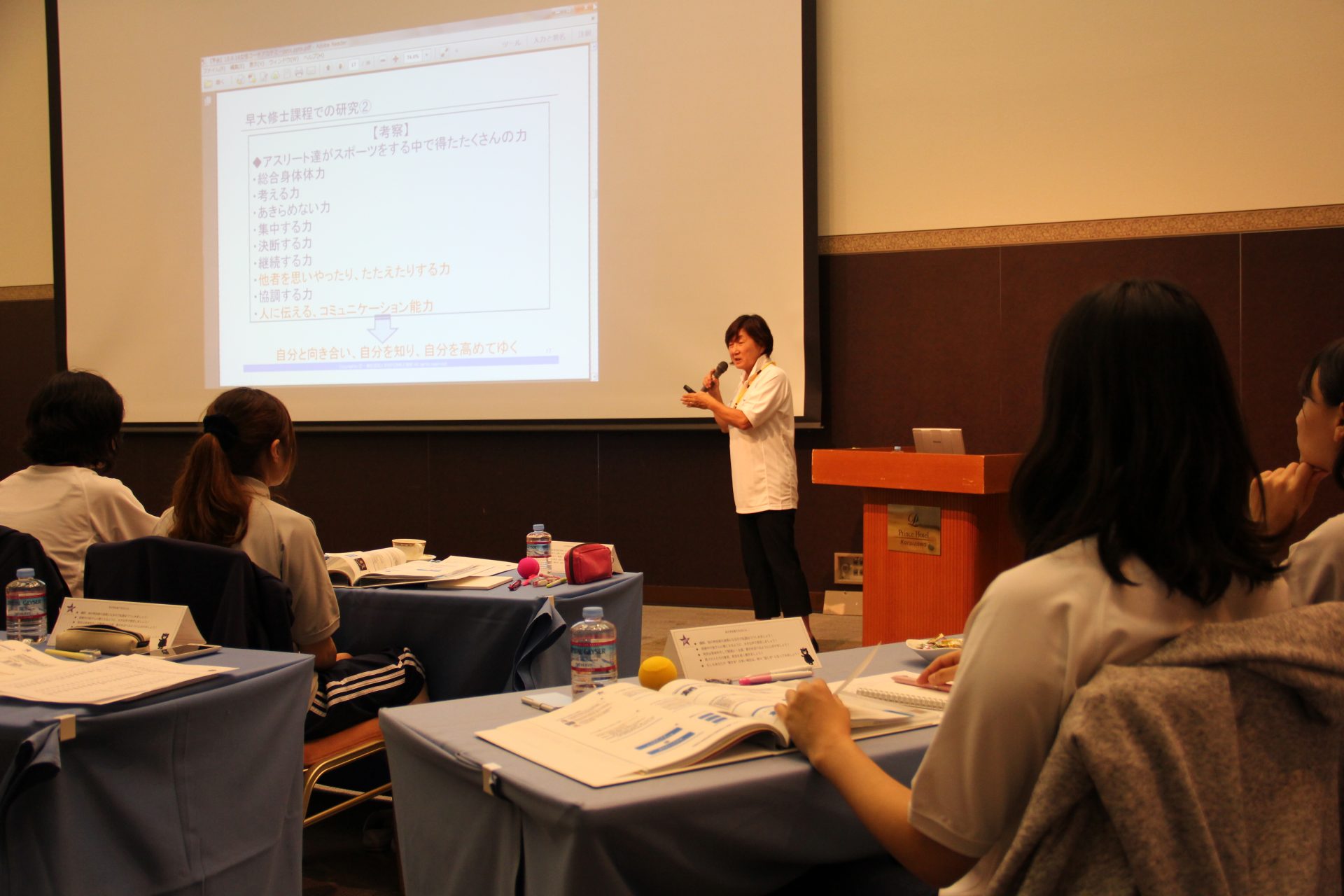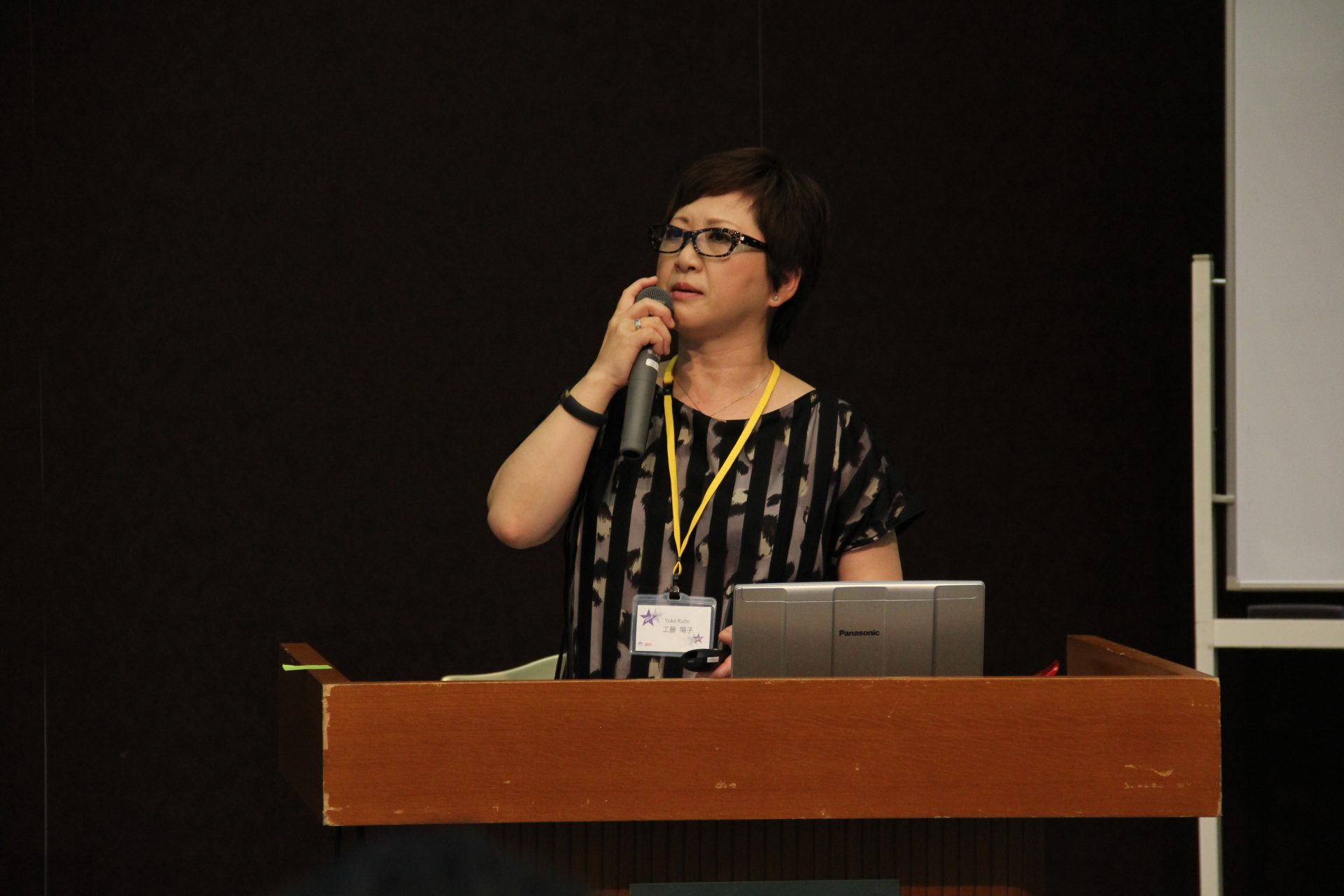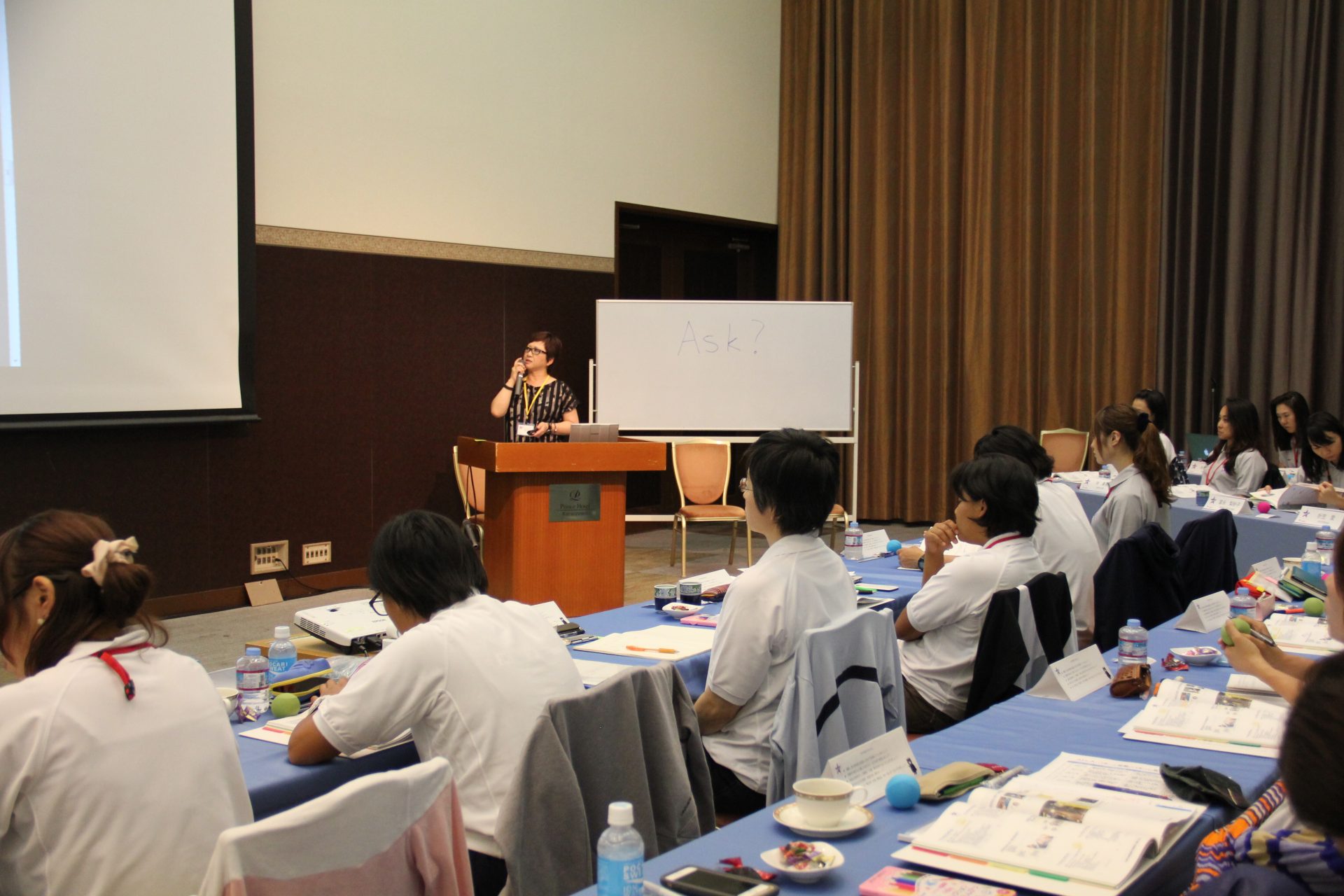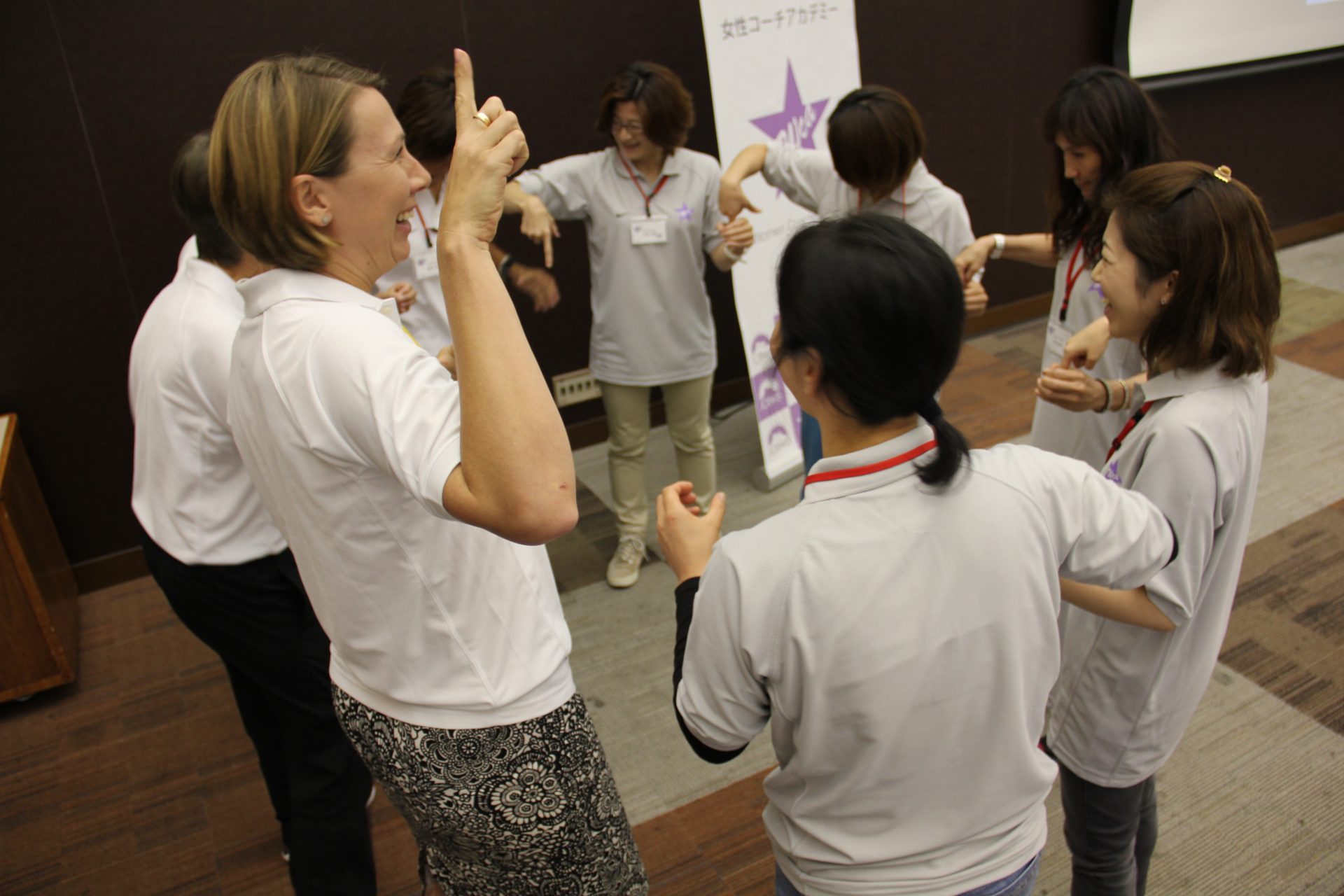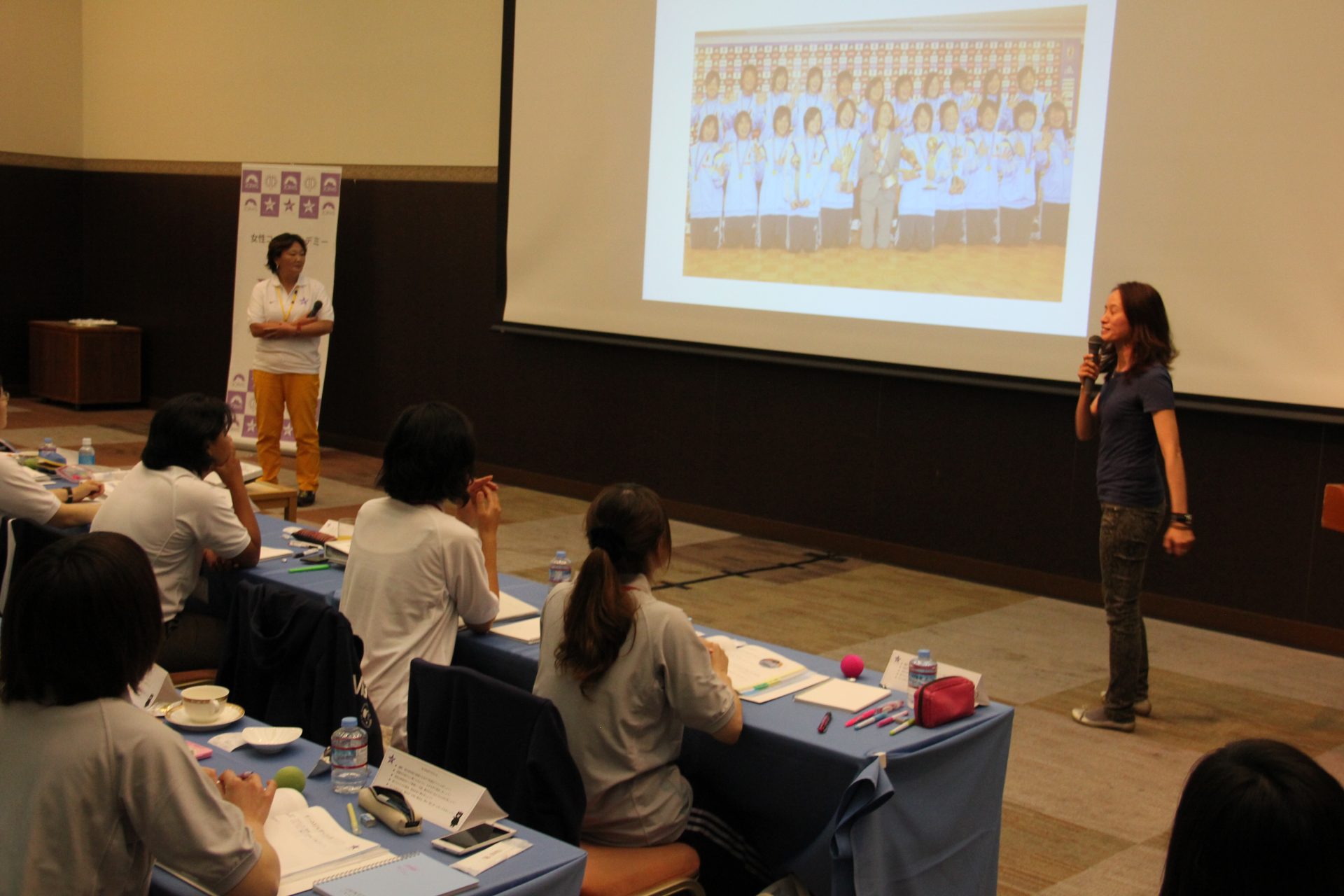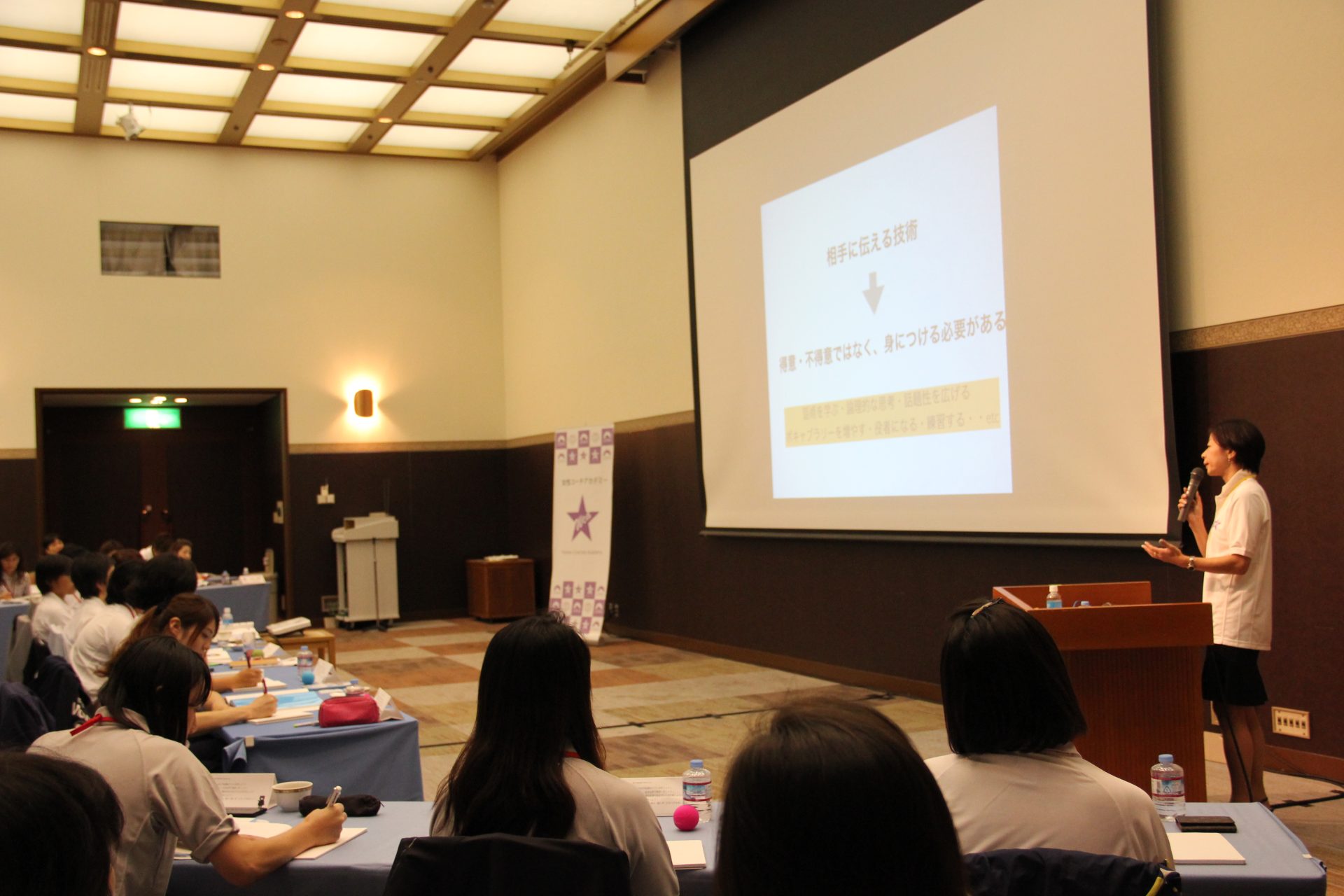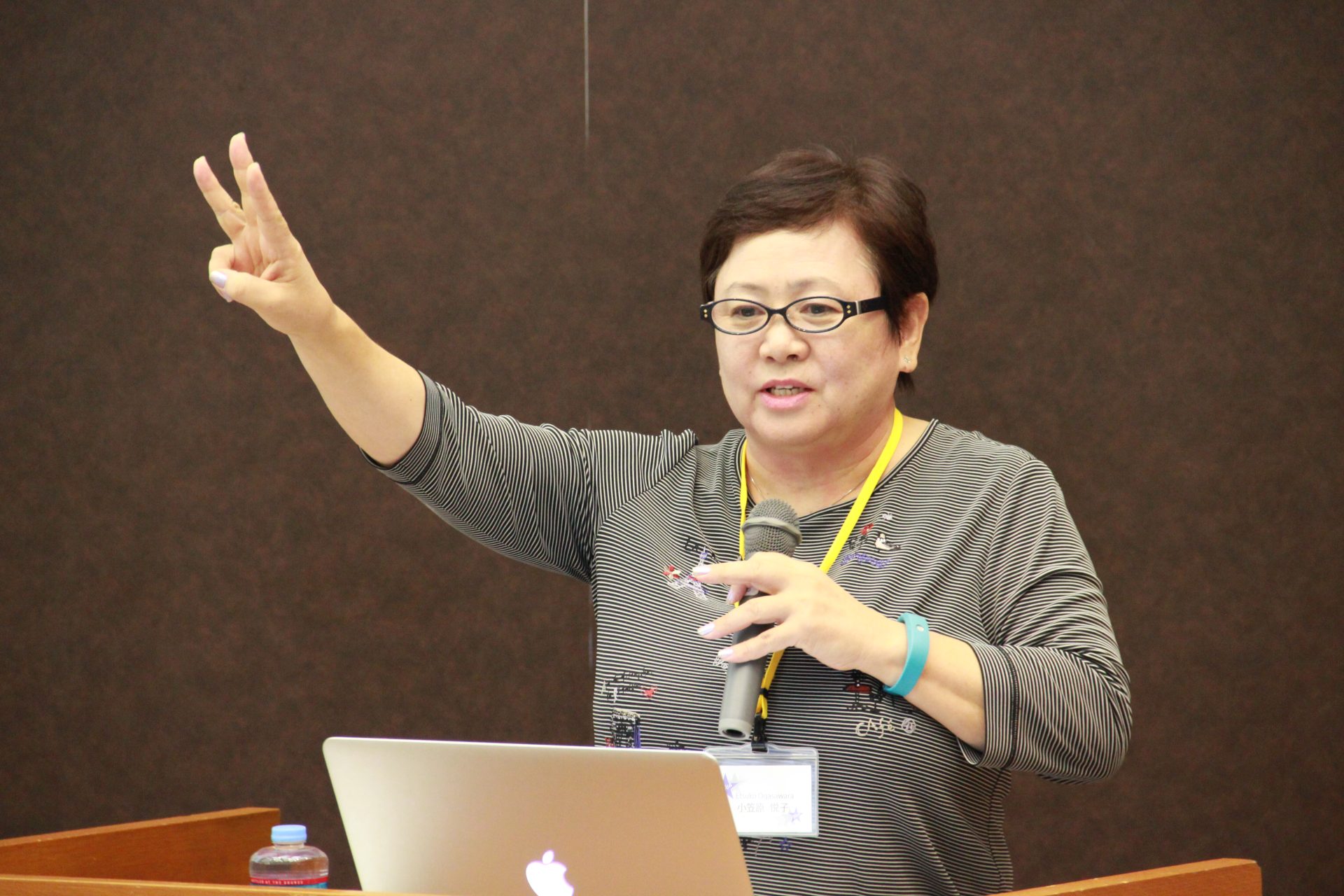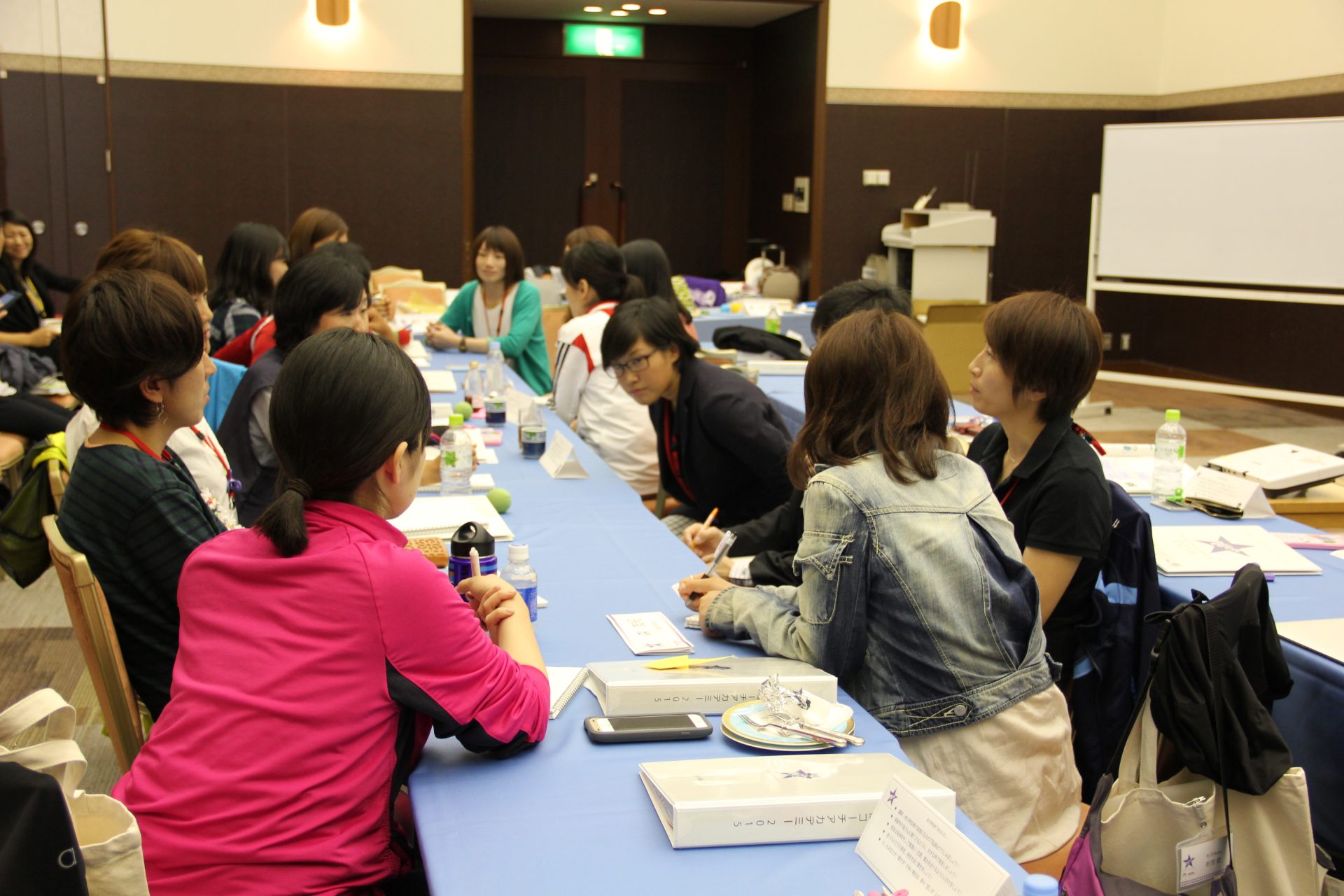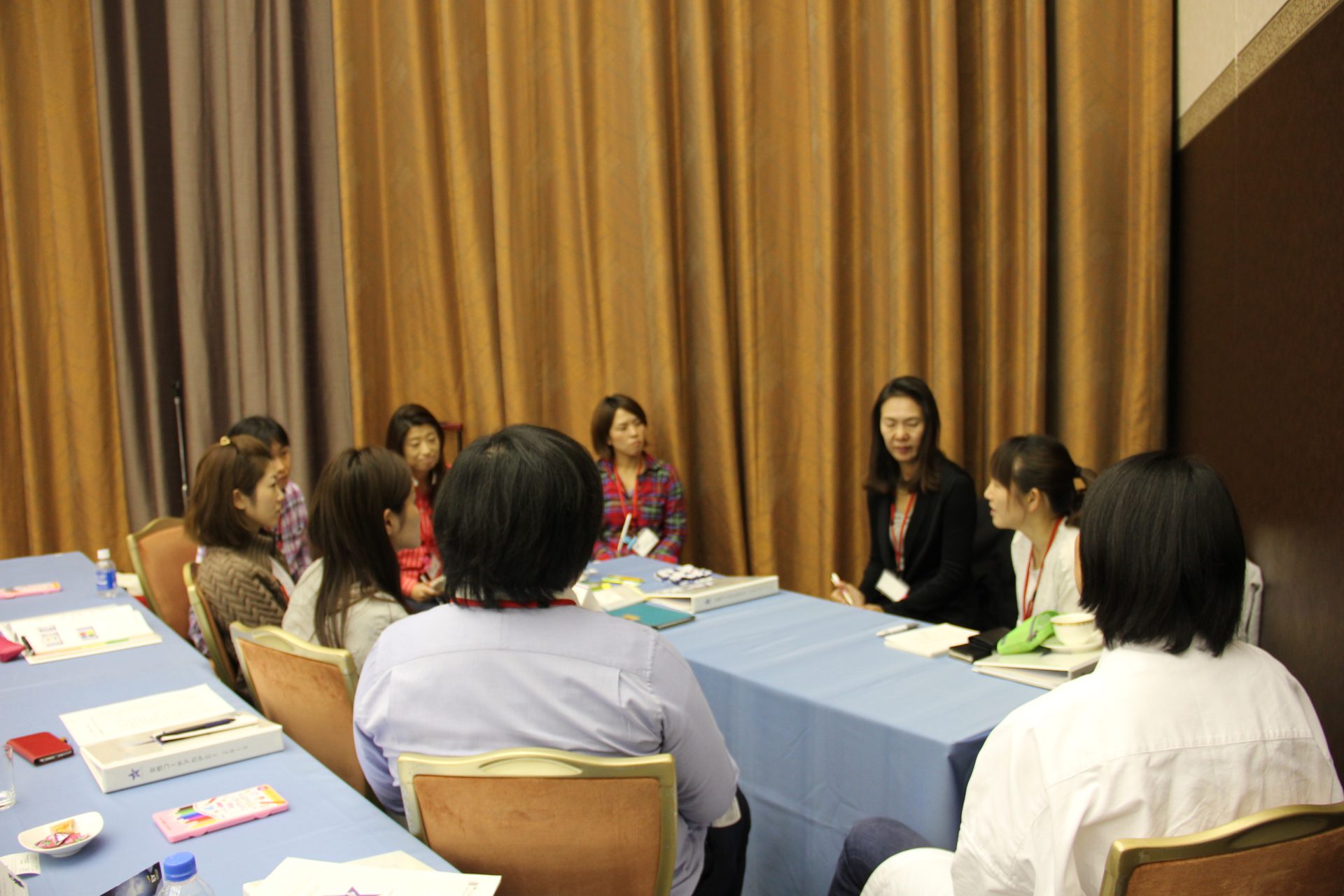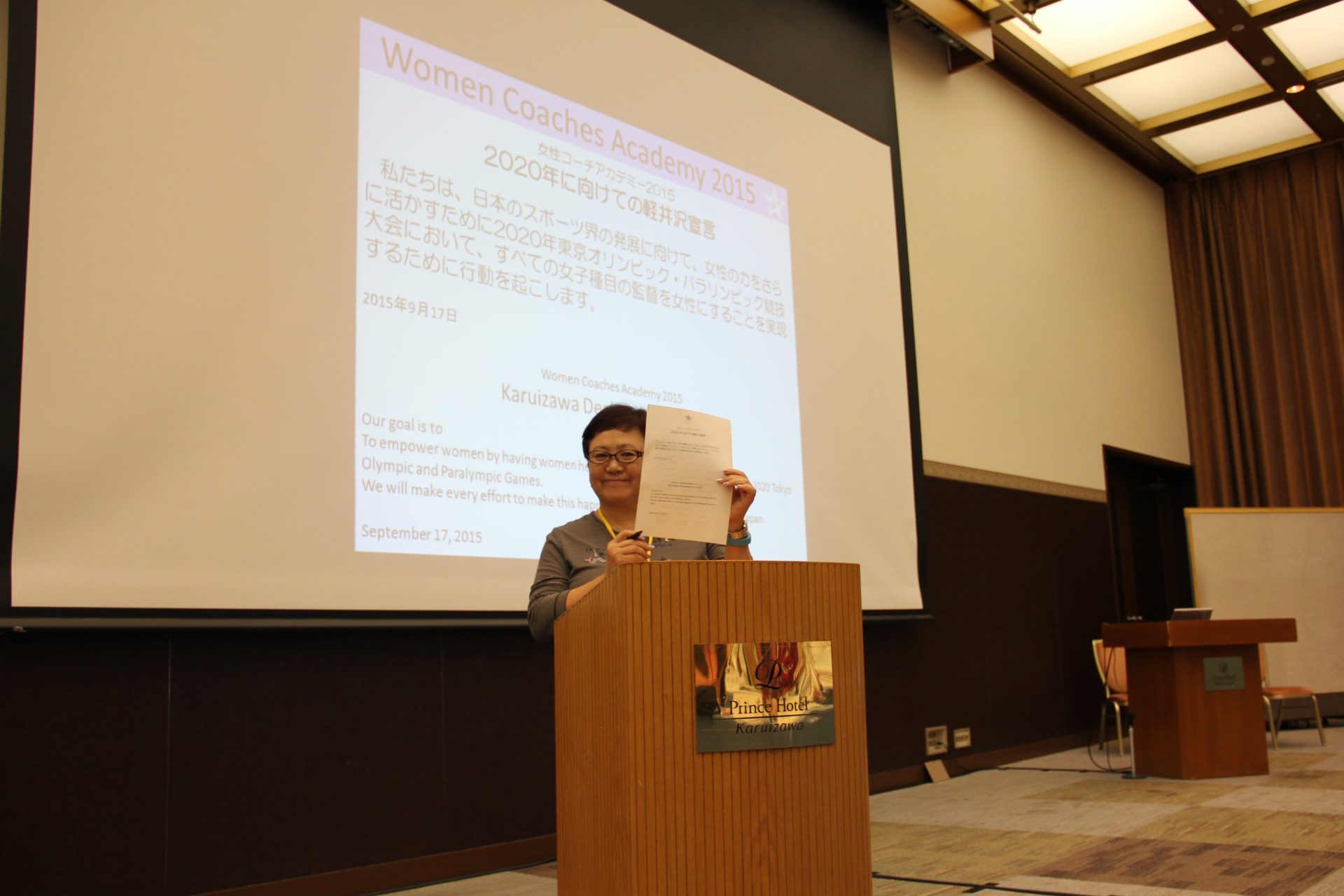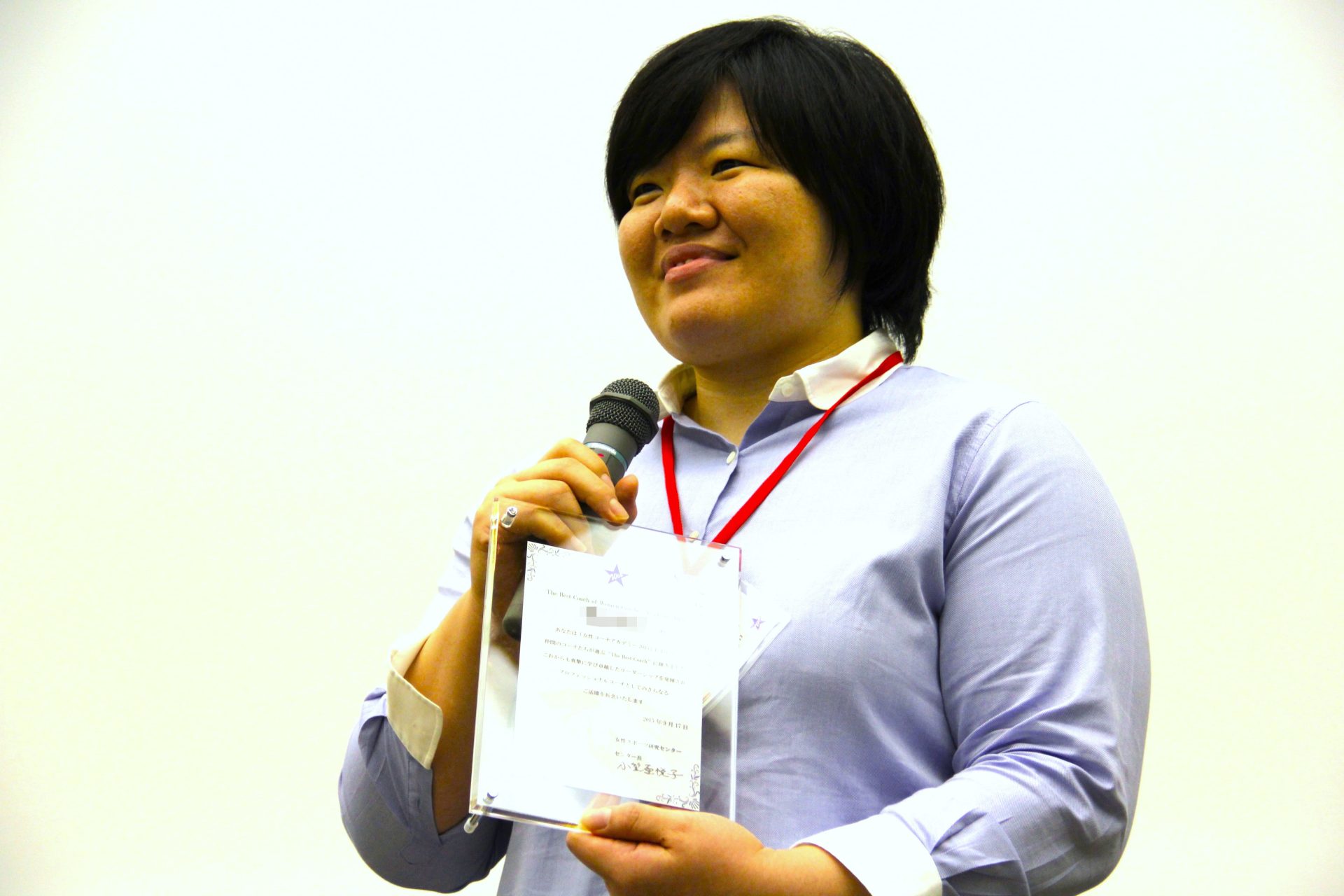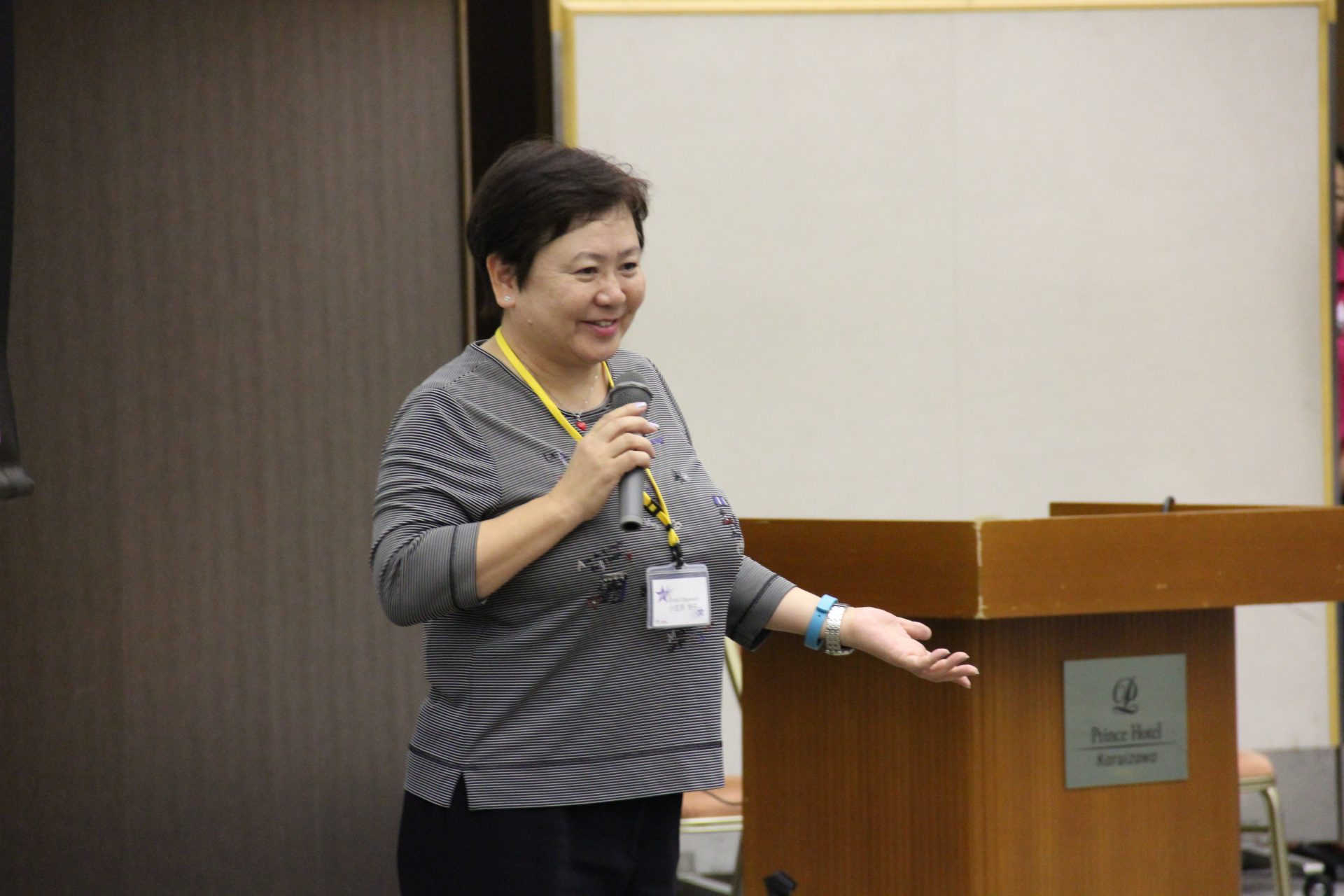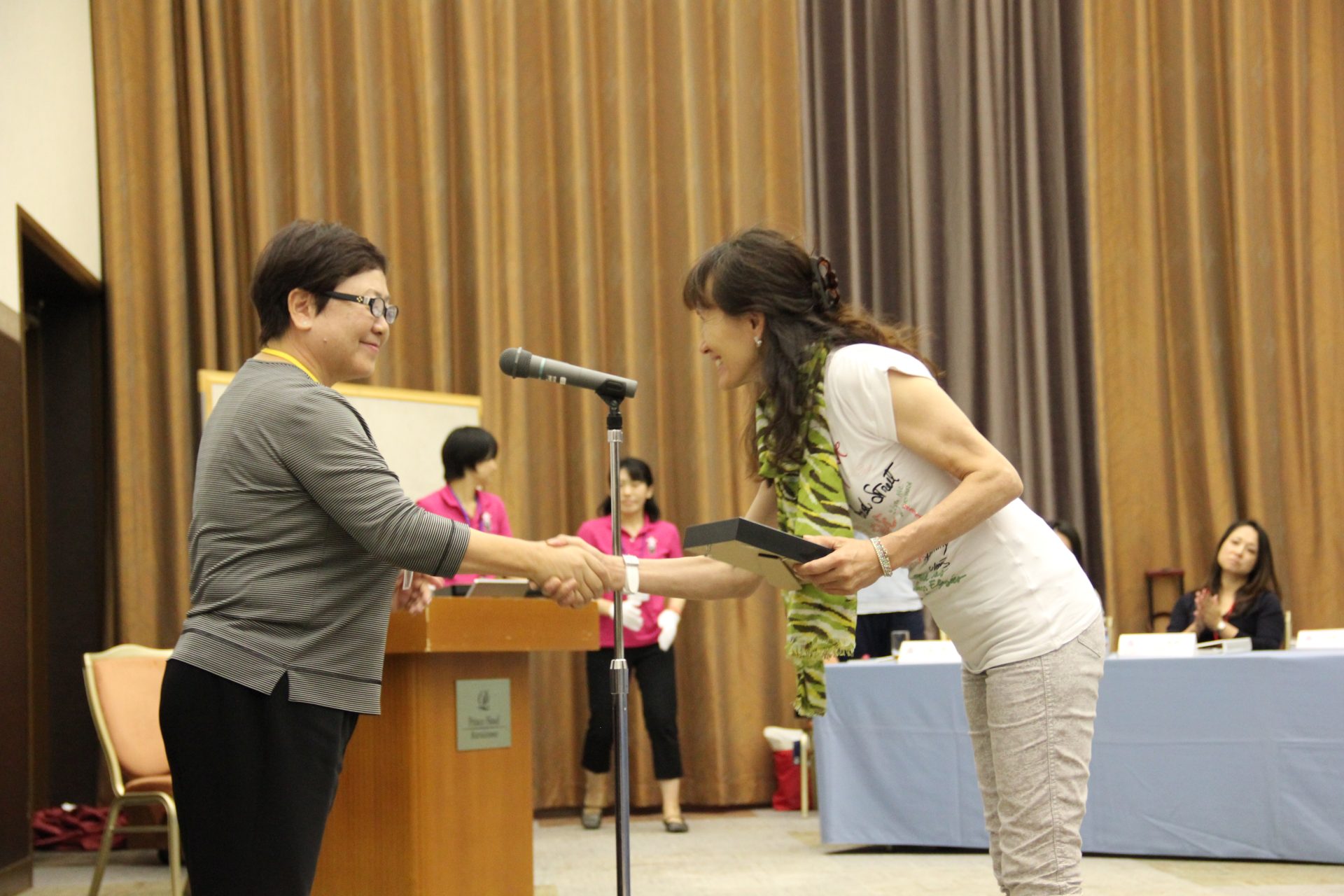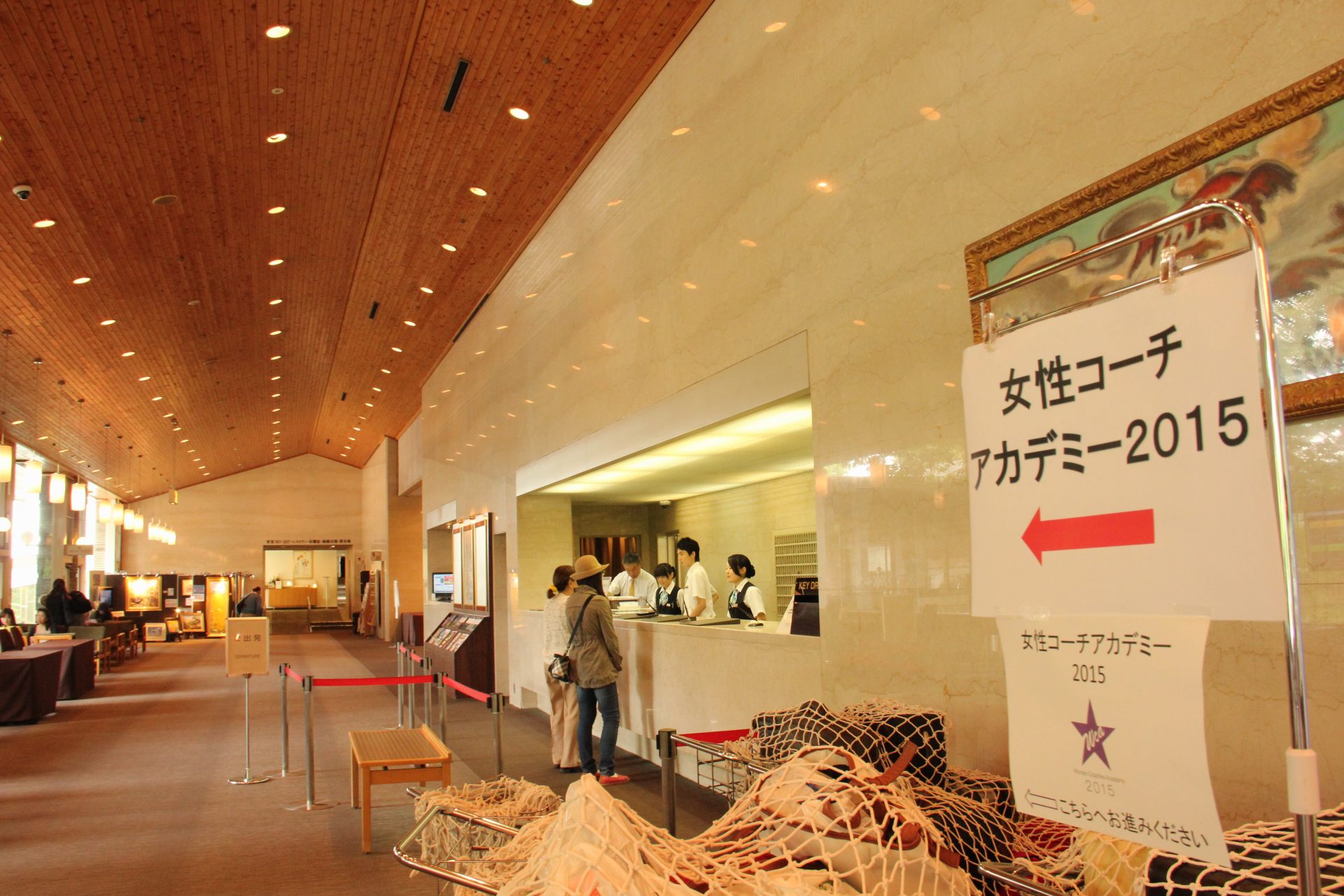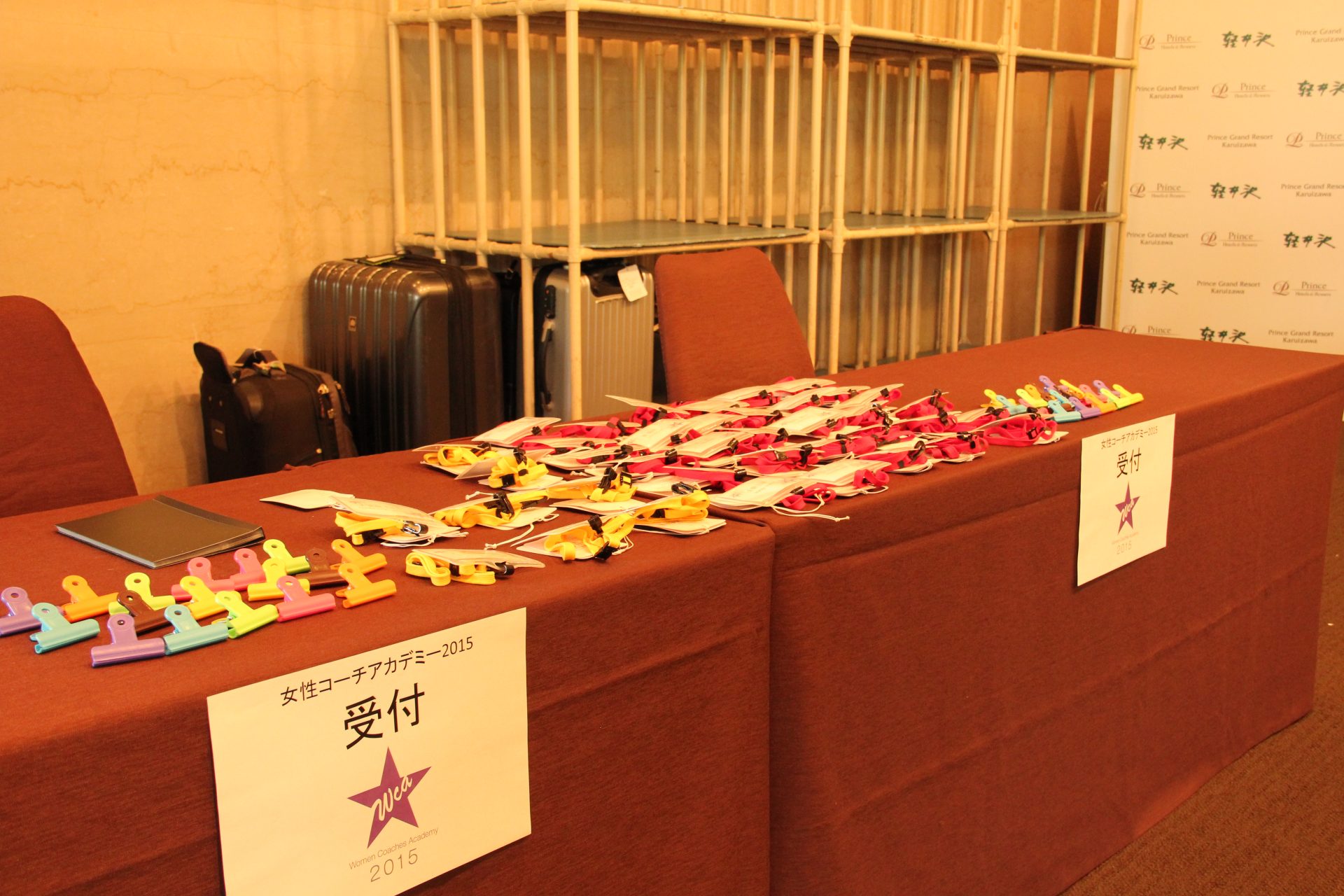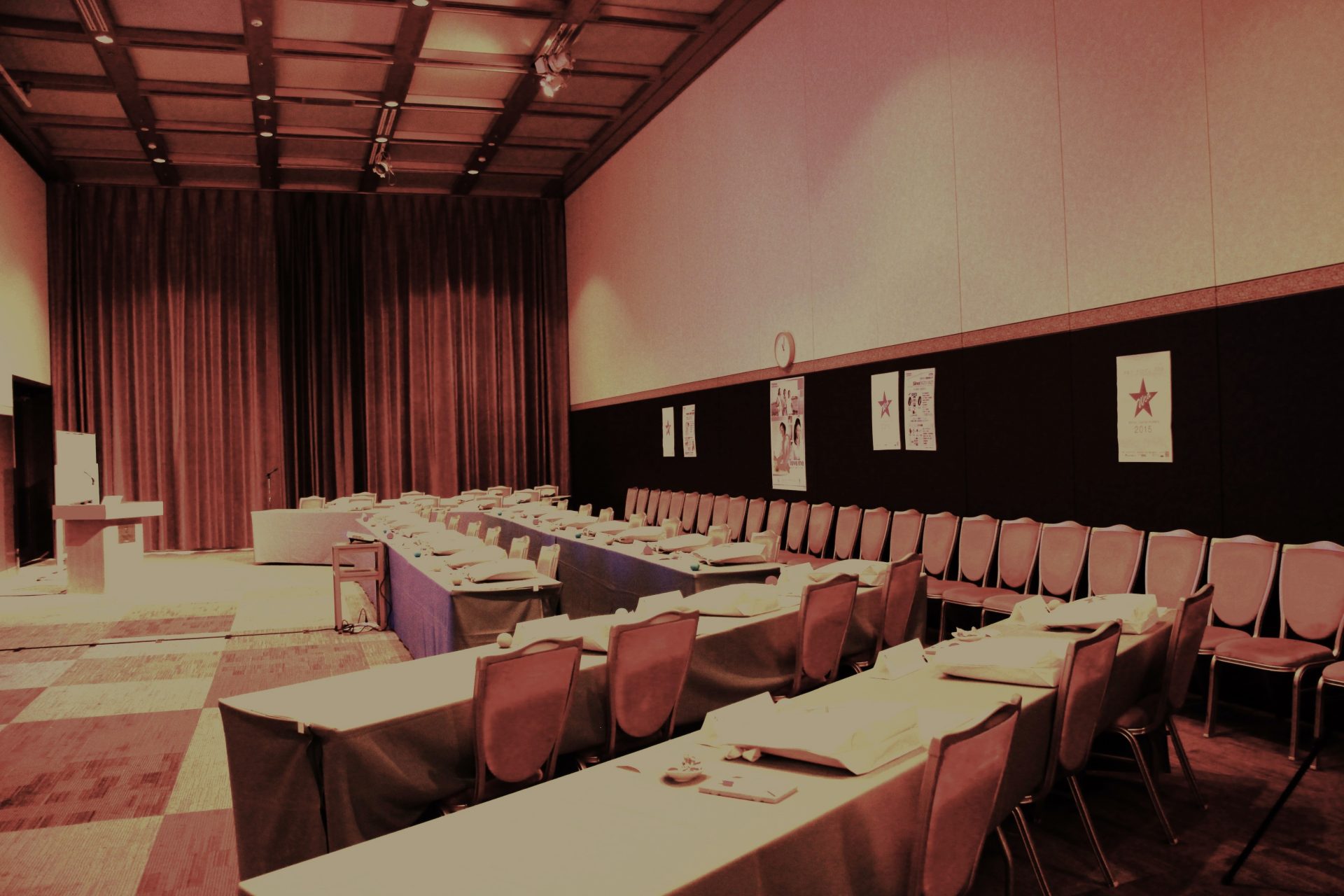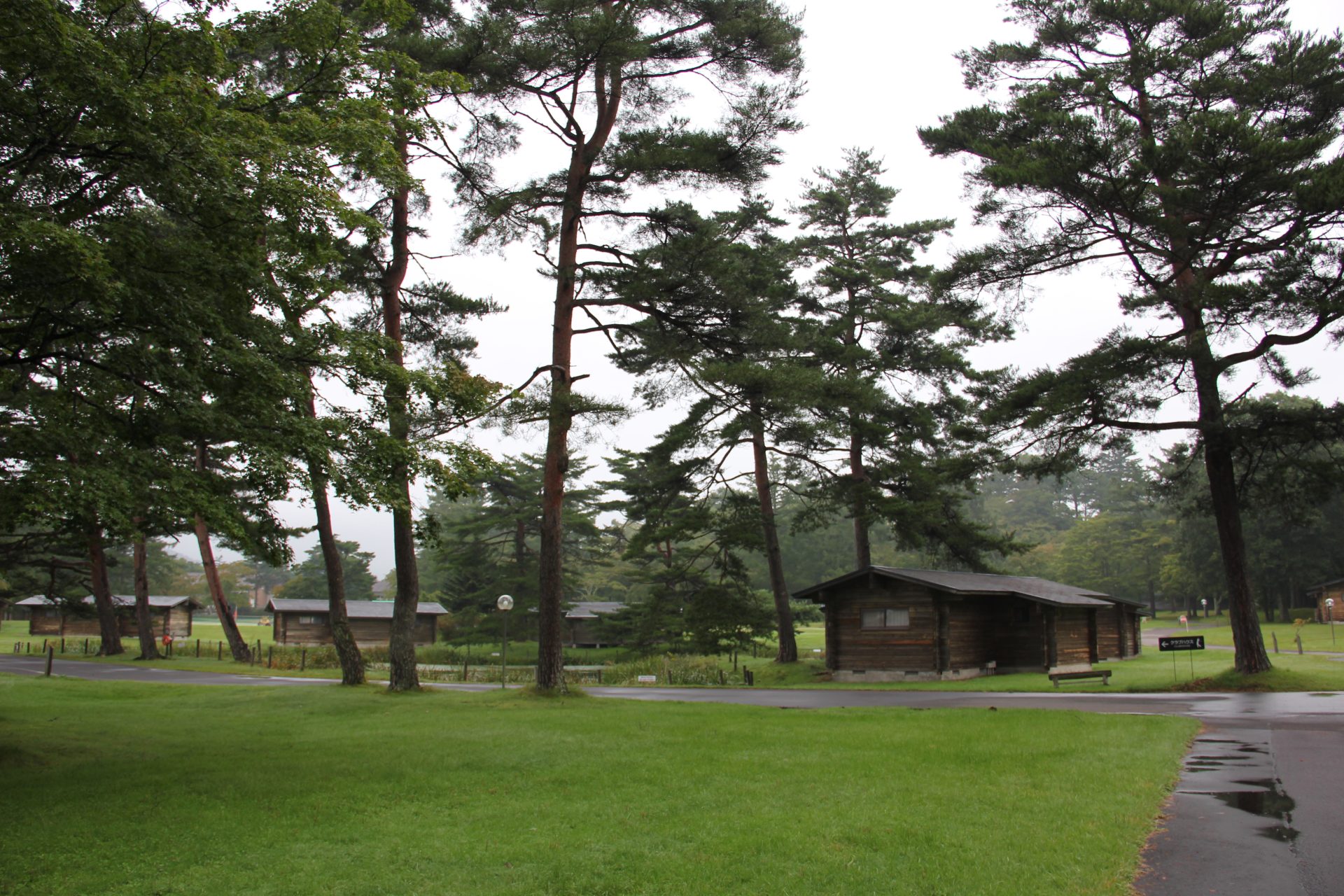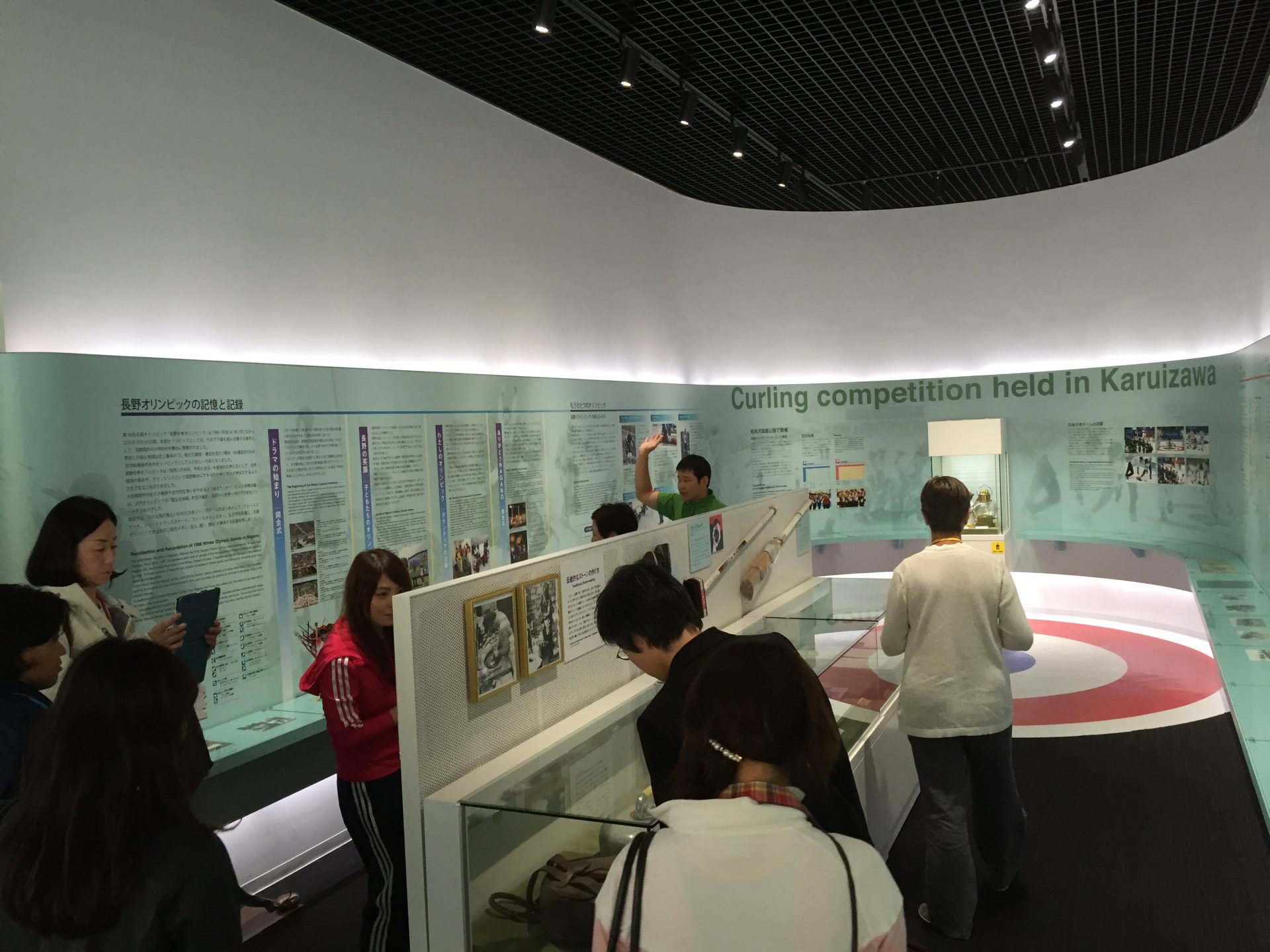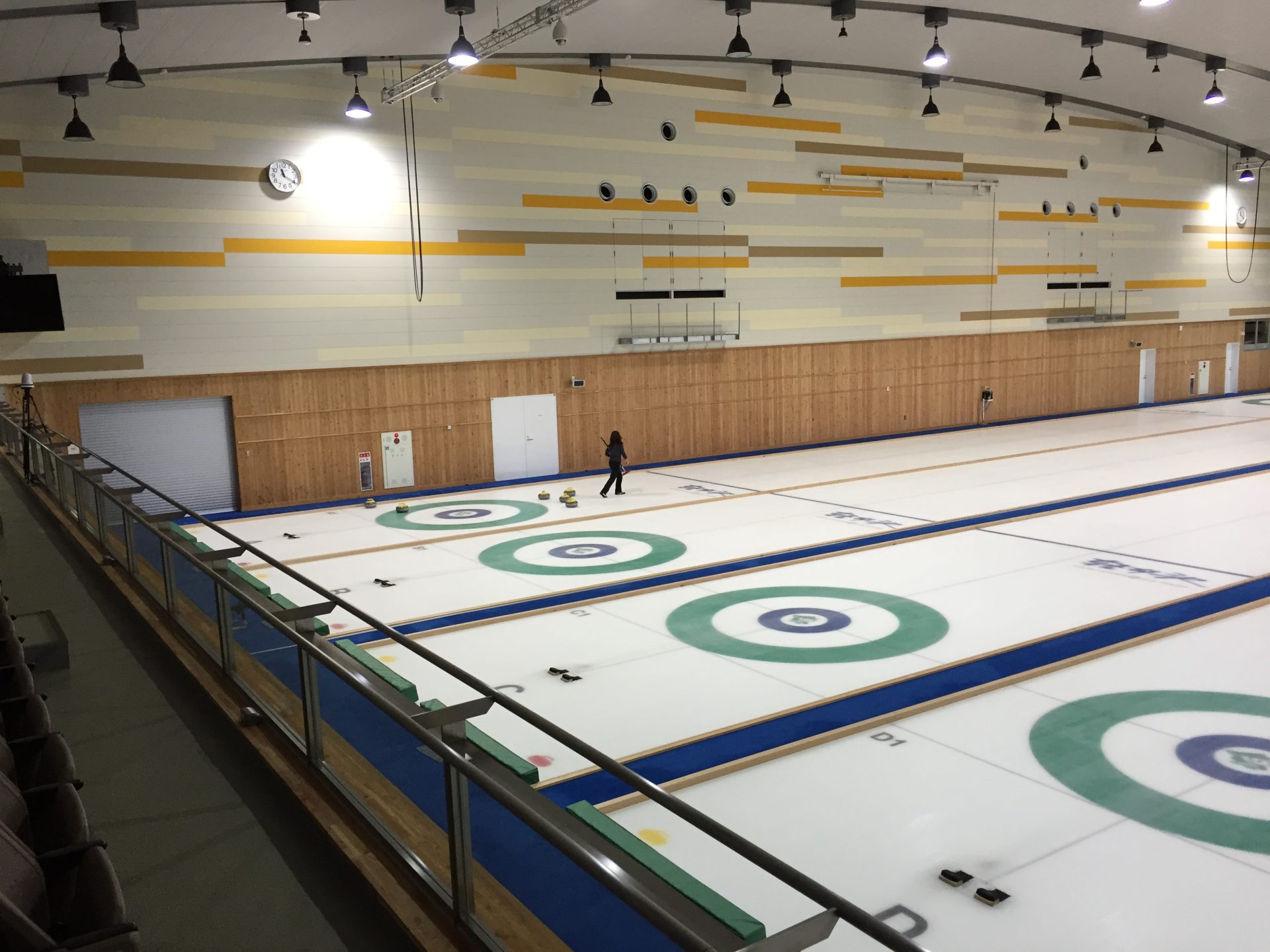
Program
Date : September 15th-17th, 2015
-
Day1
-
01Opening
(Including Self Introduction) -
02Coaching as professional
Ms. Marlene Bjornsrud, Executive Director of the Alliance of Women Coaches
-
03Female Athletes and Conditioning I
“Female Athlete Triad”Ms. Natsue Koikawa, Deputy Director, Japanese Center for Research on Women in Sport(JCRWS)
-
04Female Athletes and ConditioningII
“Sport Nutrition”Dr. Shihoko Suzuki, Professor, Faculty of Health and Welfare, Nutrition Major (Undergraduate, Master and Doctor ), Kanagawa University of Human Services
-
05Round table Session
Ms. Yasuko Miyajima, Sports Commentator, TV Asahi Sports Station/ Visiting Professor, Juntendo University
-
-
Day2
-
06Career Planning for Coaches
Dr. Akiko Arai, Assistant Professor, Faculty of Sport Sciences, Waseda University
-
07DISC Program
Ms. Liz Hanson, Client Director at Athlete Assessments.
Dr. Akiko Arai, Assistant Professor, Faculty of Sport Sciences, Waseda University -
08Mental Training and Coping Skills
Ms. Miyako, Tanaka-Oulevey, President, Polygone, Inc.
-
09Communication Skills
Ms. Fusako Sugiyama, Principle, Palm International Tennis Academy
-
10Work-Life Balance
Ms. Yoko Kudo, Senior Principle, Ernst & Young ShinNihon LLC
-
11Team Building
Ms. Asako Takakura, Head Coach of Professional Soccer
Ms. Miyuki Kobayashi, General Manager of JEF UNITED Ichihara・Chiba Ladies -
12Leadership
Ms. Kaori Yamaguchi, Associate Professor, Faculty of Sports and health Science, University of Tsukuba
Dr. Etsuko Ogasawara, Executive Director, Japanese Center for Research on Women in Sport (JCRWS)
-
-
Day3
-
13A History of Women in Sport
Dr. Etsuko Ogasawara, Executive Director, Japanese Center for Research on Women in Sport (JCRWS)
-
14Diversity in Sport
Ms. Marlene Bjornsrud, Executive Director of the Alliance of Women Coaches
Dr. Rieko Yamaguchi, Associate Professor, Faculty of Business Administration, Josai University -
15Networking
-
16Closing Ceremony
-
Venue:
Karuizawa Prince Hotel(Nagano Prefecture)Address:
Karuizawa, Karuizawa-machi, Kitasaku-gun, Nagano, 389-0193 Japan
OrganizerJapanese Center for Research on Women in Sport (JCRWS)
SponsorshipTOSHIBA CORPORATION
CooperationAlliance of Women Coaches
The Nippon Foundation Paralympic Support Center
Ernst & Young ShinNihon LLC
01Opening (Ceremony)
FacilitatorsDr. Etsuko Ogasawara, Executive Director,
Japanese Center for Research on Women in
Sport (JCRWS)
Ms. Natsue Koikawa, Deputy Director, Japanese
Center for Research on Women in Sport
(JCRWS)
Free Discussion as a kick off event
of the WCA 2015
WCA 2015 started in the free space room. In this room, the participants were divided into several groups and discussed their interests.
After this ice-break activity, all lecturers, support staff and the participants, who were going to spend 3 days together moved to the main conference room and introduced themselves. Dr. Etsuko Ogasawara, Executive Director of JCRWS and Ms. Natsue Koikawa, Associate Director of JCRWS who were hosting the Academy greeted everyone enthusiastically.
02Coaching as Professional
LecturerMs. Marlene Bjornsrud, Executive Director of
the Alliance of Women Coaches
TranslatorDr. Maki Ito, Assistant Professor, Sport and
Health Science, Sport Management, Juntendo
University
What Coaching Qualifications are Required?
Five Responsibilities Coaches Need to Learn
Ms. Bjornsrud explained the roles of coaches. Women coaches especially had an important job, being a role model and responsibility towards young girls under their guidance. In addition, Ms. Bjornsrud talked about necessity of qualifications required of coaches and five responsibilities coaches need to learn.
She closed the session by introducing the activity called “Coaching Tree”. It was an opportunity for each partcipant to show their appreciation to people who influenced them to be a coach. The session was very warm as reflected by Ms. Bjornsrud personality.
03Female Athletes and
Conditioning I
“Female Athlete Triad”
LecturerMs. Natsue Koikawa, Deputy Director, Japanese
Center for Research on Women in Sport
(JCRWS)
Female Athlete Triad,
What Should Coaches Know?
Female Athlete Triad (FAT) has three common conditions that female athletes and their coaches should know about. Ms. Koikawa presented a basic knowledge of FAT and the most recent information on treatments and prevention of the three conditions. She also highlighted that coaches should understand the importance of educating female athletes and providing information to them.
04<spanFemale Athletes and
Conditioning II
“Sport Nutrition”
LecturerDr. Shihoko Suzuki, Professor, Faculty of Health
and Welfare, Nutrition Major (Undergraduate,
Master and Doctor ) Kanagawa University of
Human Services
Sport Nutrition:
Supporting Athletes to Have Optimal Athletic Life
Dr. Suzuki talked about the importance of supporting athletes by providing good nutrition to maintain their optimal athlete’s life. She spoke enthusiastically that supporting athlete’s nutrition is an important factor in athlete management. It was not only providing daily dietary menu, but also including conditioning, body composition, water and supplement intake, and eating habits during sickness. She also pointed out that athlete’s body sometime became “very efficient” or even “too efficient” metabolically that called for attention in sport nutrition. Dr. Suzuki’s lecture was easy to follow and fun, and engaging for the audience.
05Round Table Session
FacilitatorMs. Yasuko Miyajima, Sports Commentator, TV
Asahi Sports Station / Visiting Professor,
Juntendo University
Intereractive Round Table Session
in a Relaxed Atmosphere
A round table session was held after dinner in a relaxed atmosphere. Ms. Miyajima who facilitated the session began by asking some questions related to the participants’ positions and circumstances. The participants started to talk about their own stories. Regarding a question from a coach who was uncertain about her future direction,the answer was provided by the other participants. Some other questions, such as coaching methods, the lecturers answered. It was a very collective round table session.
06Career Planning for Coaches
LecturerDr. Akiko Arai, Assistant, Waseda University,
Faculty of Sports Science
Developing Coaching Philosophy
Why is it important for coaches to plan their own careers? Dr. Arai led the workshop that encouraged each participant to develop a coaching philosophy. In addition, the participants set up long-term goals and identified barriers, then categorized them. Lastly, they created action plans to pursue their goals.
07DISC Program
LecturerMs. Liz Hanson, Client Director at Athlete
Assessments.
TranslatorDr. Akiko Arai, Assistant, Waseda University,
Faculty of Sports Science
Adaptive and Natural Styles
The participants took Japanese version of “CoachDISC Profile” prior to this academy. In this session, they brought the results that indicated their behavioral characteristics and learned more about adaptive and natural styles of their behavior.
Ms. Hanson explained that DISC could reveal differences between behavioral styles and these differences could cause conflicts. She stressed different values among team members should be respected and valued in the team culture. As each coach has a unique behavior style each athlete has her own behavioral style as well. It is important for coaches to recognize and understand their athletes’ behavioral styles and mechanisms in order to gain the best benefits in team dynamics. CoachDISC was introduced for the first time in Japan and would be great resource for those coaches who participated in this session.
08Mental Training and Coping Skills
LecturerMs. Miyako, Tanaka-Oulevey, President,
Polygone, Inc.
Why is Mental Training Needed?
Why is mental training needed as well as technical skills and strategies for high performance? Ms. Tanaka-Oulevey lectured scientific theories in mental training. In this work session, the participants learned self-awareness, “Who am I ?”, and she explored their past events and understood how these events influenced them. Ms. Tanaka-Oulevey also talked about controlling emotions in a stressful situation. The participants took a diagnostic assessment to understand the pattern of their responses to stress.
Ms. Tanaka-Oulevey, as a mental and coping expert, provided useful skills in coaching.
09Communication Skills
LecturerMs. Fusako Sugiyama, Principle, Palm
International Tennis Academy
Know Yourself, Excel Yourself
Ms. Sugiyama reported that athletes learned good skills, such as self-reflection and pursuing personal growth through sports. High performance would be achieved by the combination of constant improvement in athletic skills and personal development. She also added the definition of “Mission”, as a core of beliefs in order to set the athletes goals to improve their athletic skills and strive to be an honorable person. In the workshop, the participants explored their mind to find their own “Mission”. Further, the participants practiced their listening/speaking skills for effective communication and presented strategies.
10Work-Life Balance
LecturerMs. Yoko Kudo, Senior Principle, Ernst & Young
ShinNihon LLC
Work-life Balance at Each Stage of Life
Work-life balance is to strike a balance between work, family, friends, and yourself at each life stage. It also aims to improve one’s life satisfaction. Ms. Kudo recognized the importance of this issue from her experiences with her clients.
In order for female coaches who have experienced pregnancy and childbirth to pursue their careers, it is very important to receive support from their partners and co-workers at each life stage. To receive support fully, female coaches should expand their professional networking. Ms. Kudo explained the qualification for leaders and the importance of leadership training for women, and eventually these female leaders would be good role models for the next generation.
11Team Building
LecturersMs. Asako Takakura, Head Coach of
Professional Soccer
Ms. Miyuki Kobayashi, General Manager of JEF
UNITED Ichihara・Chiba Ladies
Relaying My Experiences to the Next Generation
Japan won the last FIFA U17 Women’s World Cup. Ms. Takakura was the first female head coach of the team. This year, Japanese women’s soccer team won the AFC U19 and qualified for the U20 Women’s World Cup in 2016. Along with these victories, Ms. Takakura and Ms. Kobayashi exlained that the women’s team followed “Japan’s Way” which was the motto created by Japan Football Association (JFA) for both men and women’s team. Under “Japan’s Way”, they built the teams focusing on team strengths. They trained young players calmly and passionately.
Ms. Takakura and Ms. Kobayashi shared their stories. “When we played soccer, there were very few female players. Today, our generation is leading women’s soccer in Japan. We want to relay our experiences to the next generation, then we hope you will pass your experiences on to the following generation”.
12Leadership
Theories and Practices
– A New Approach to Leadership
Lecturer
Dr. Etsuko Ogasawara, Executive Director, Japanese Center for Research on Women in Sport (JCRWS)
Leadership is not about innate ability, but is a behavior style. Dr. Ogasawara started her lecture off with the scholastic history of leadership; the theory of leadership influencing and motivating people and organizations to pursue their goals. The participants learned leadership theories and models and took the survey called “Leadership Scale for Sports (LSS)” to compare their results to the DISC program reviewed previously.
Lecturer
Ms. Kaori Yamaguchi, Associate Professor, Faculty of Sports and health Science, University of Tsukuba
A leader needs preparedness. To be a leader, ask yourself “Why do I want to be a coach? ” Ms. Yamaguchi explained that coaches needed to think logically and have good communication skills, specifically when they speak to athletes. Coaches need to give the sense of confidence to their athletes and be able to explain the reasons logically. Coaches should be consistent with what they are saying therefore they need to keep learning. Ms. Yamaguchi was active in promoting the implementation of “female head coaches at all levels of women’s sports” at the 2020 Tokyo Olympic. She emphasized that female coaches should stand up and promote change within the field of sports for themselves. To achieve this goal, each coach should be independent, seeking a higher position within her organization. Ms. Yamaguchi’s lecture gave encouragement to the participants.
13A History of Women in Sport
LecturerDr. Etsuko Ogasawara, Executive Director,
Japanese Center for Research on Women in
Sport (JCRWS)
Movements of the World and Japan, New Movement of the World,
and New Action in Japan
Dr. Ogasawara talked about three issues in Women in Sport: 1) Movements of the World and Japan; 2) New Movement of the World; and 3) New Action in Japan. She provided a history of women in sport, including a world movement and improvements that had been done in the past. In order to develop a continuous support system for female athletes, it is critical to change organizational culture in sporting organizations and create new sport culture where women could fully engage in sport. Dr. Ogasawara emphasized it would be very important to train female coaches to be good leaders with different views and thoughts. Therefore, good education and a new style of management needed to be developed.
14Diversity in Sport
LecturersMs. Marlene Bjornsrud, Executive Director of
the Alliance of Women Coaches
Dr. Rieko Yamaguchi, Assistant Professor of
Faculty of Business Administration, Josai
University
Toward Diversity Management in Sport
Victory is the highest priority in high performance sports. Therefore, some other issues,such as gender gap (e.g., opportunities, wages, and work conditions), sexual harassment, sexual minorities, and physical punishment, are often ignored. Ms. Bjornsrud and Dr. Yamaguchi pointed out a need for diversity management in sport so that a variety people could become more engaged in sports. They highlighted the issue of sexual minorities and delivered the workshop called “Coming out Star”. It was an opportunity for the participants to do self-reflection and explore their relationships with others.
15Networking
“Women Head Coaches for All Women’s Sports”,
“Karuizawa Declaration” was Spontaneously Issued
As group work, the participants discussed and presented what they could do in advance of the 2020 Tokyo Olympic & Paralympic. Followed by presenting the group goals, each individual also presented her own goals, which were related to her own environment. The participants determined that they would work hard to accomplish goals with their peers who shared the same vision and purposes.
“Karuizawa Declaration” spontaneously issued and adopted. The all participants, lecturers, and staff signed it.
Karuizawa Declaration
In order for the field of sport in Japan to further grow and open more opportunities to women, we take an action to bring female head coaches to all women’s sports in Tokyo Olympic and Paralympic Games in 2020.14Closing Ceremony
Ms. Maki Tsukada was Awarded the Best Coach
Issued the Certificate for Completion to the all Participants Supportive and Encouraging Finale
In the beginning of closing ceremony, peer coaches elected the best coach of the academy. The first best coach award was given to Ms. Maki Tsukada. Ms. Tsukada, was completely surprised and unable to move, the participants created the arch to send her to the podium. Ms. Tsukada received the memorial plaque and made a speech.
Next, the video about the process of the academy for the past three days with the peer participants and lecturers showed. Then, the certificate for completion was given to each participant. It was very touching moment.
Last, Dr. Ogasawara (JCRWS) who hosted the academy sent the strong messages to the participants who expected to play major roles in the field of sports in Japan. The participants, lecturers, and staff were united, to become one-team. They promised to keep exchanging information and working together. This first academy in 2015 made a great finish.


